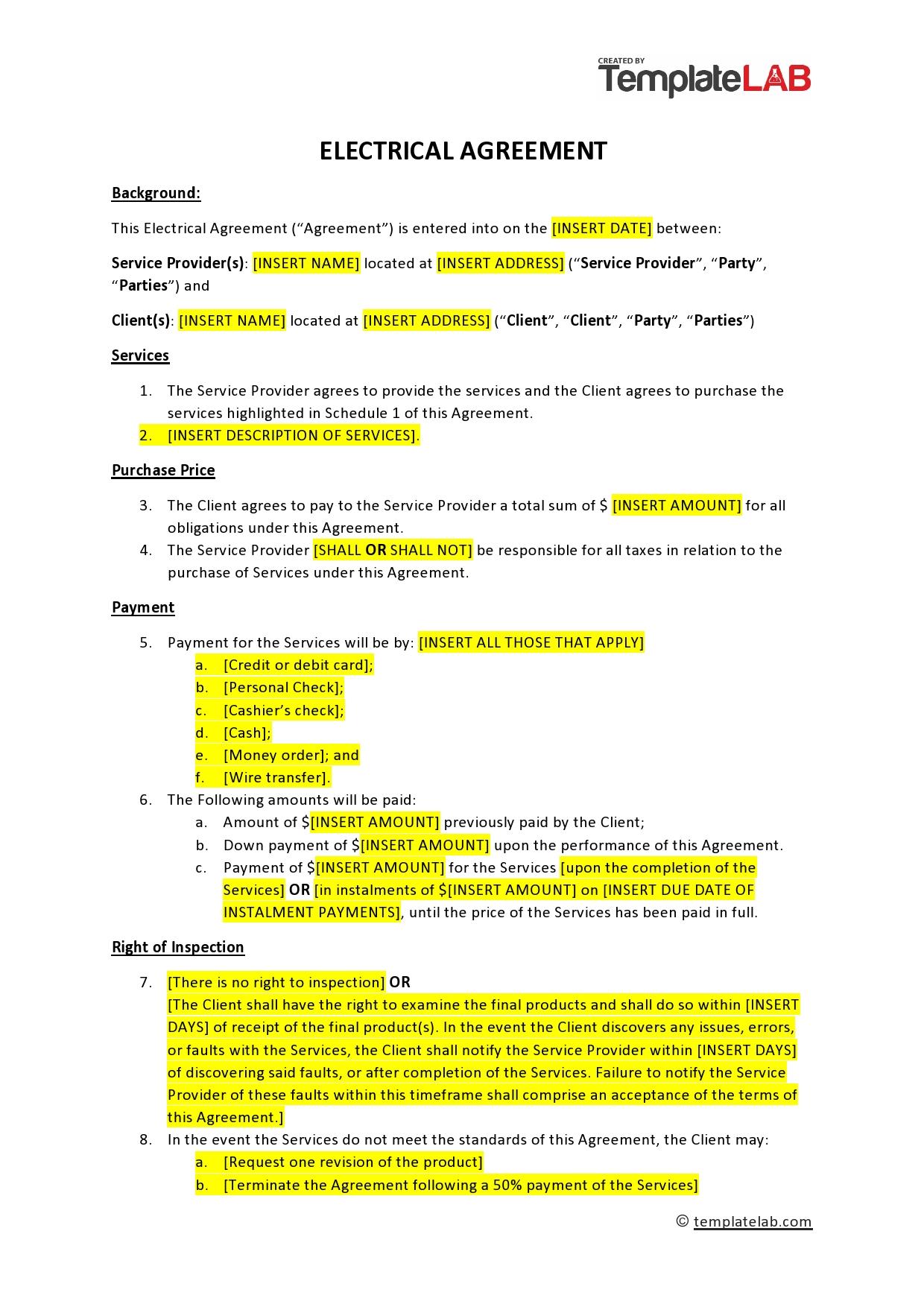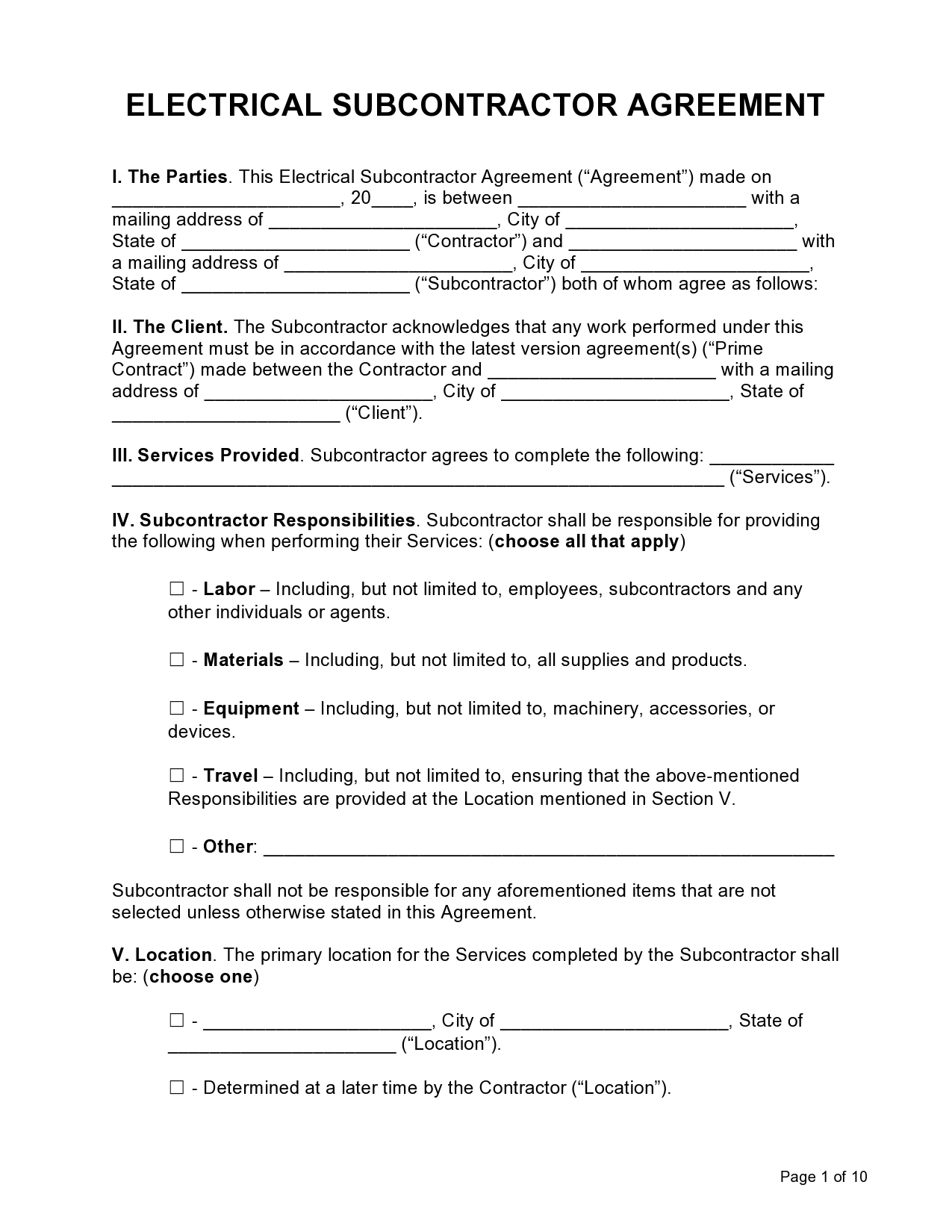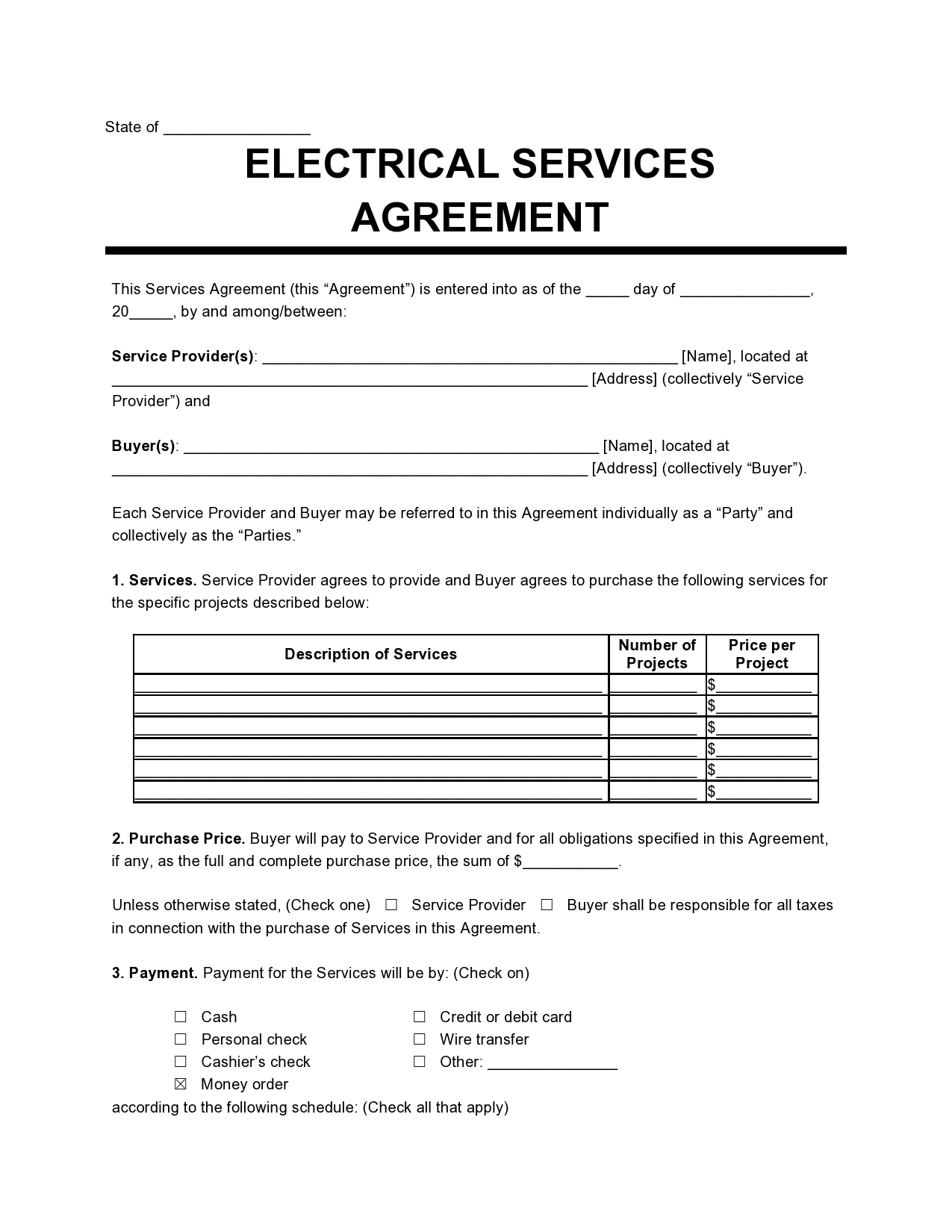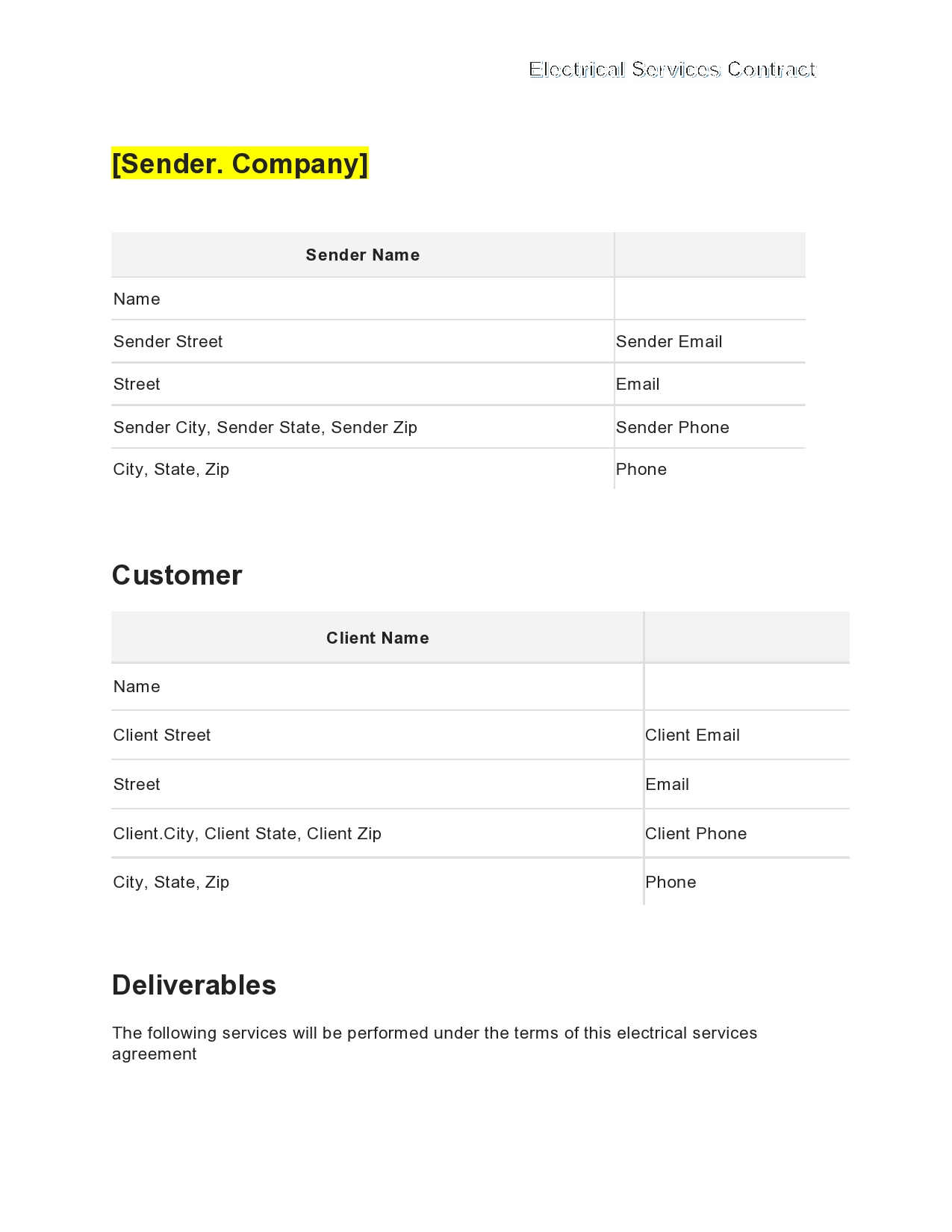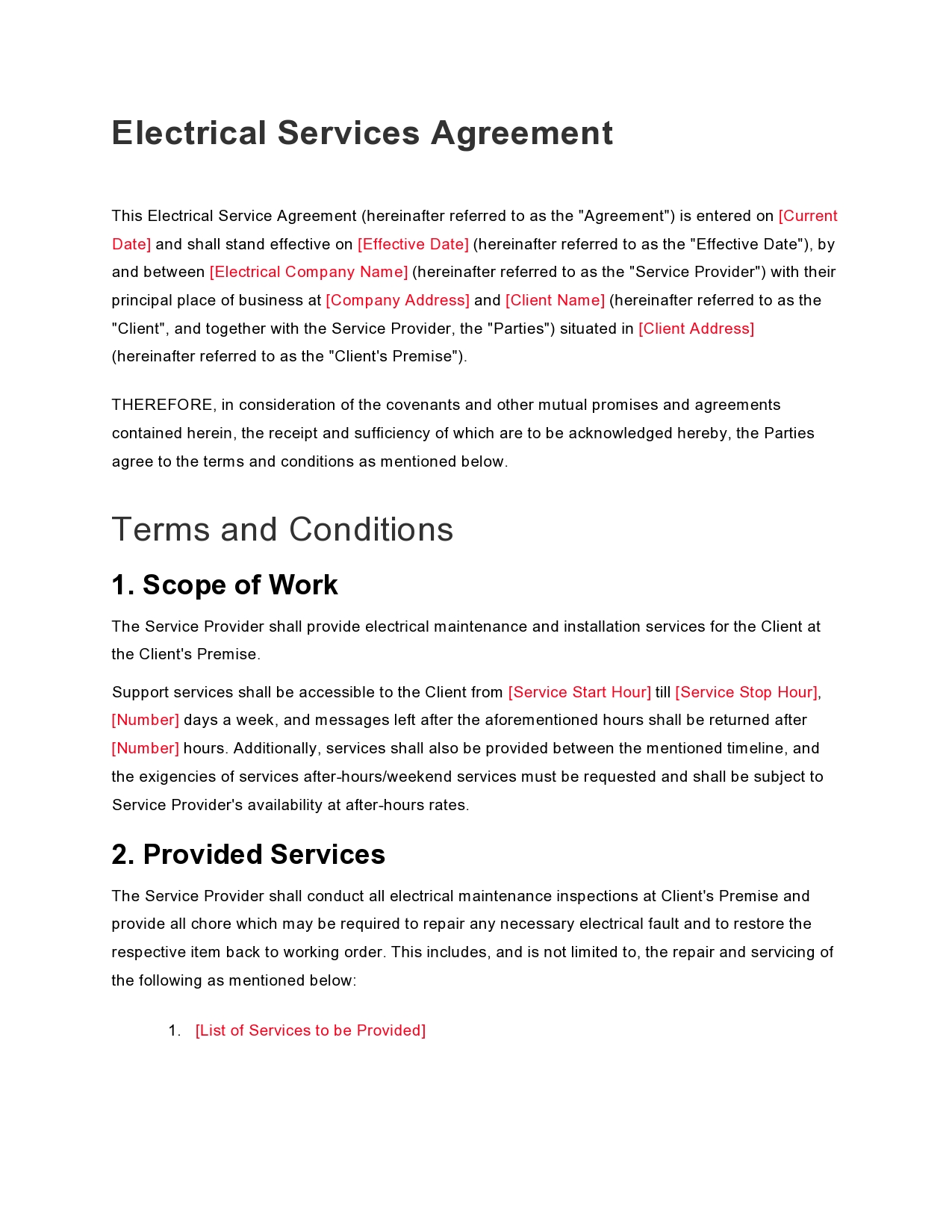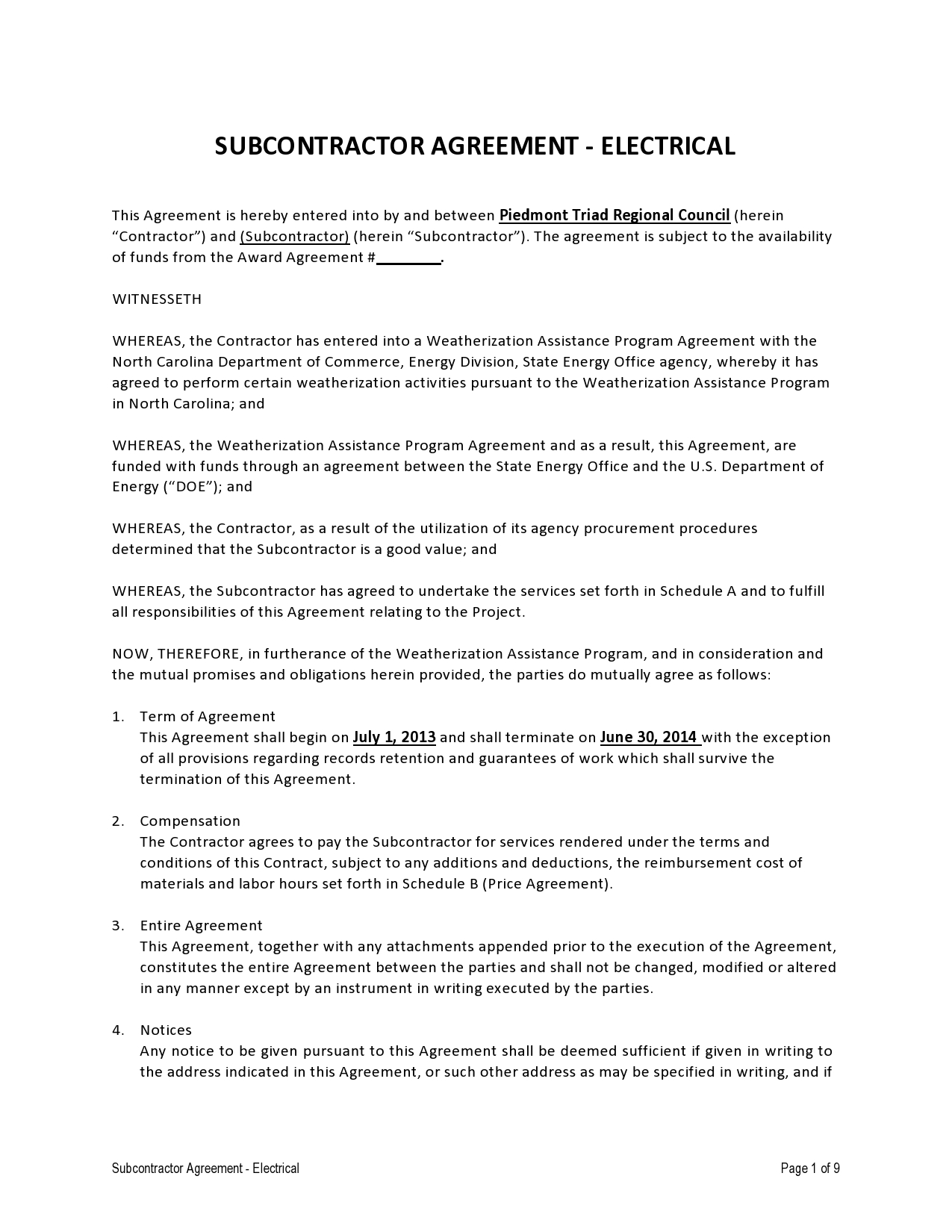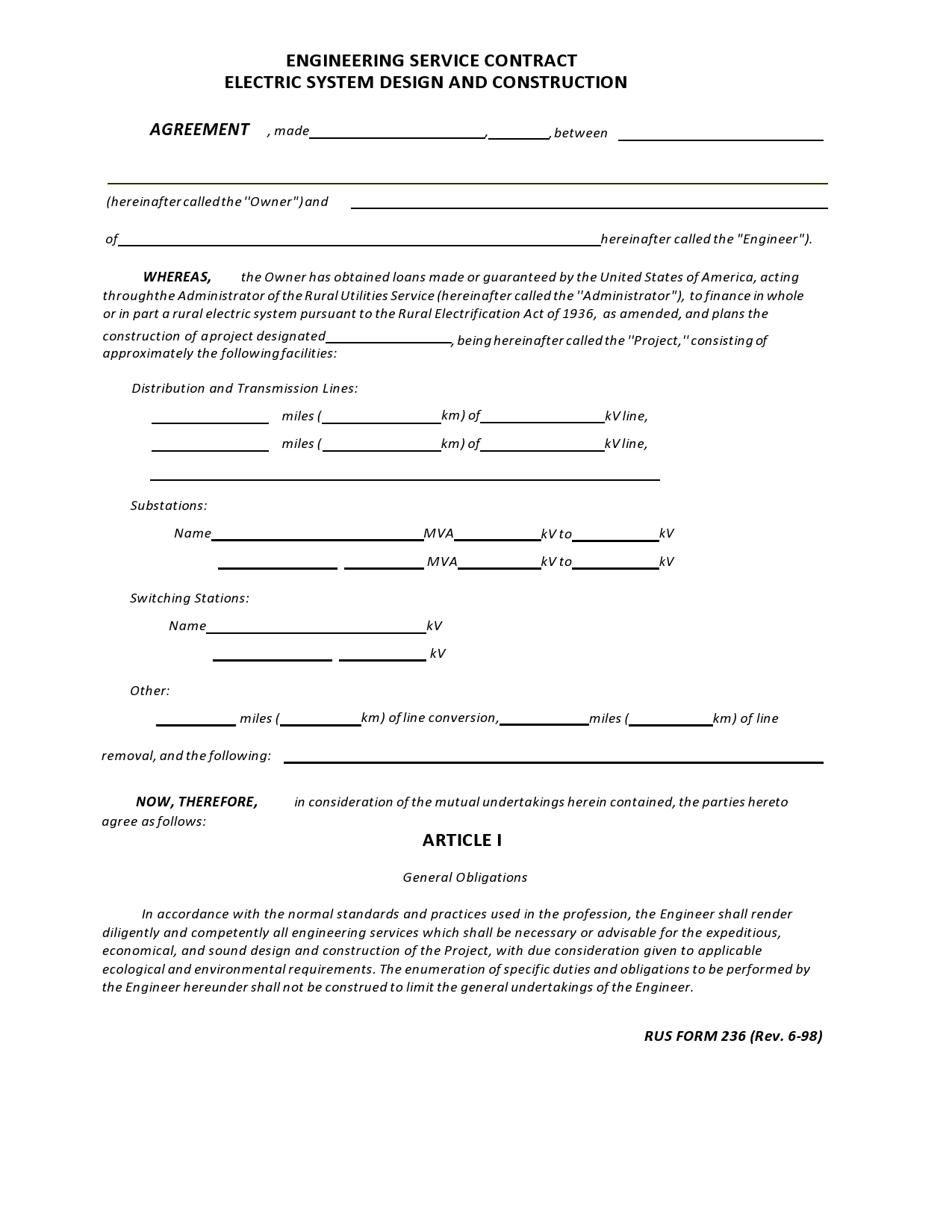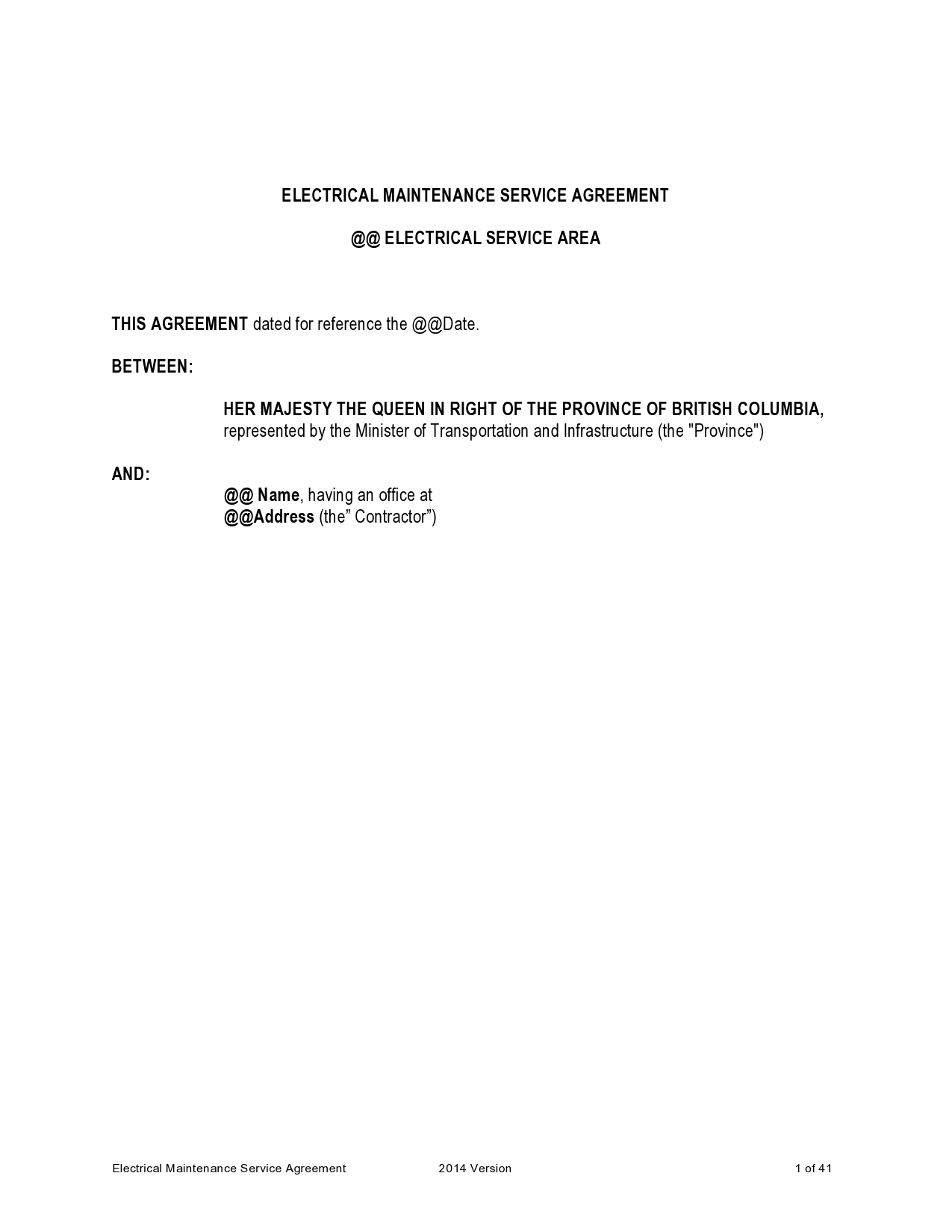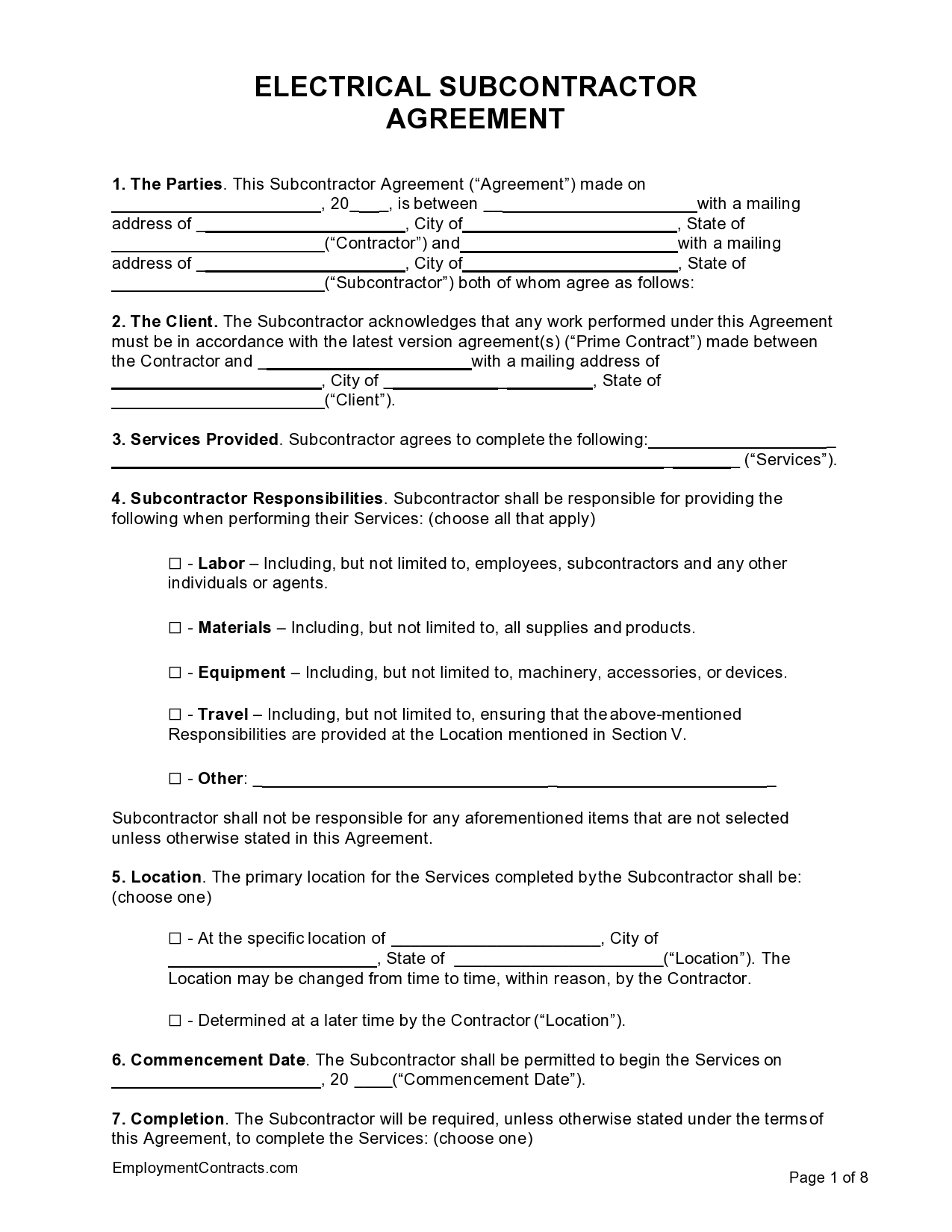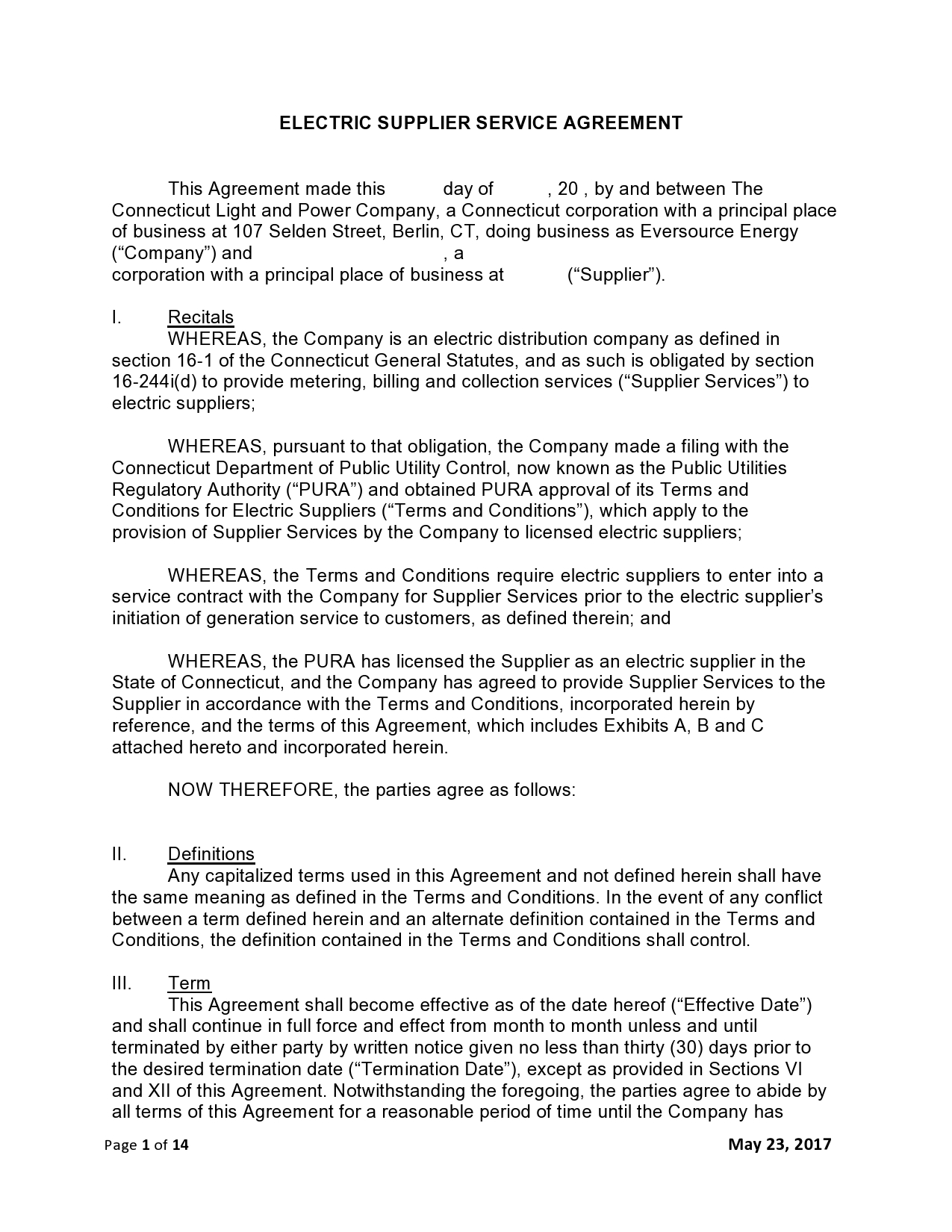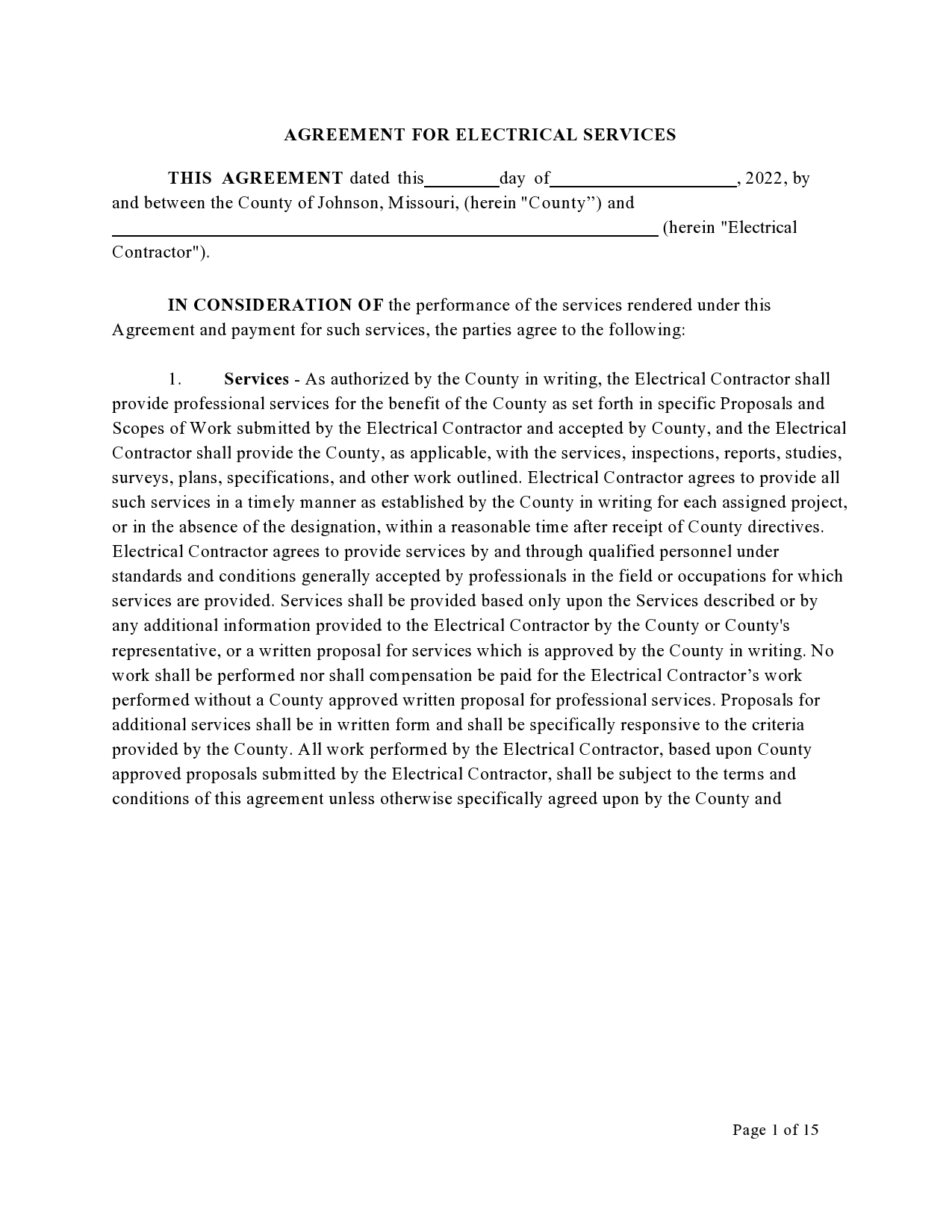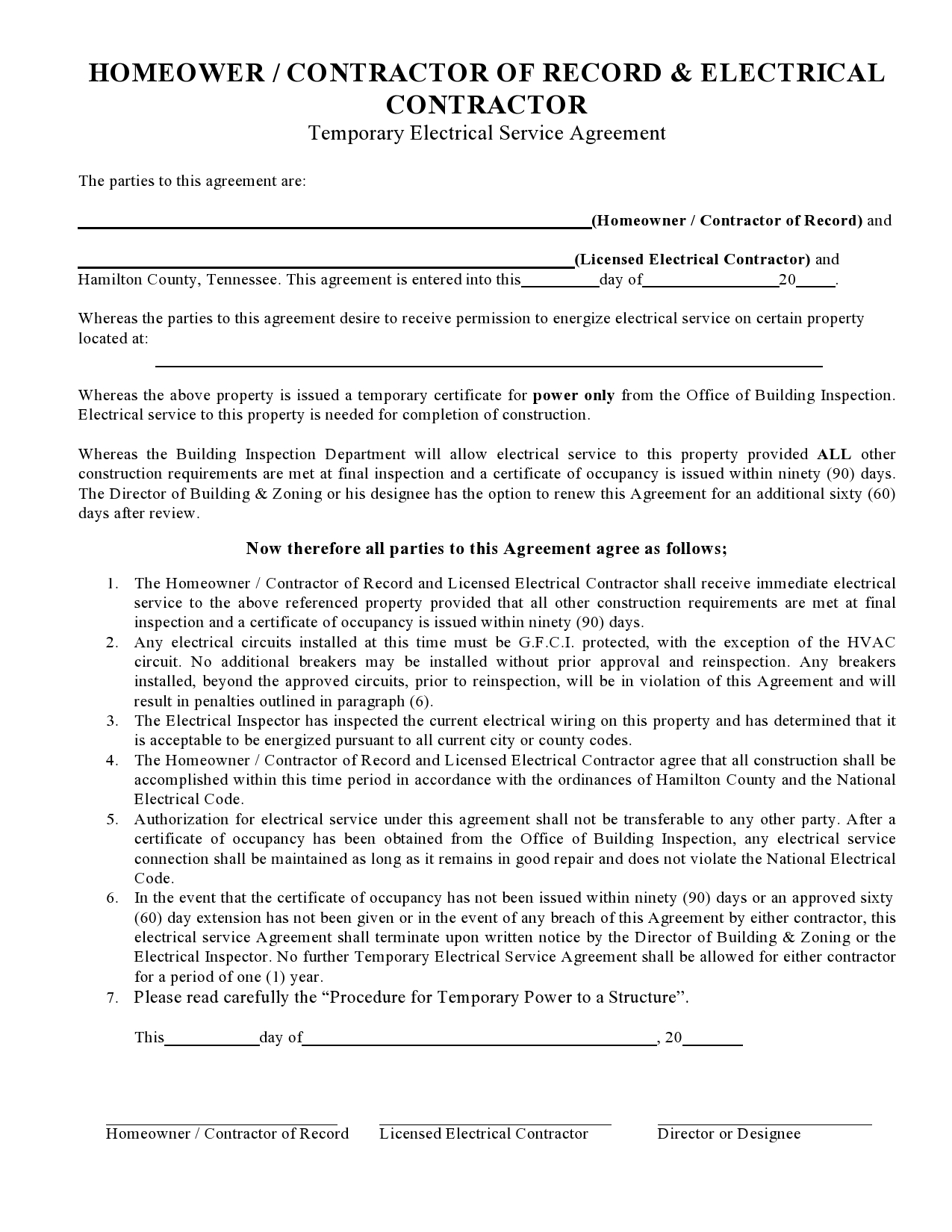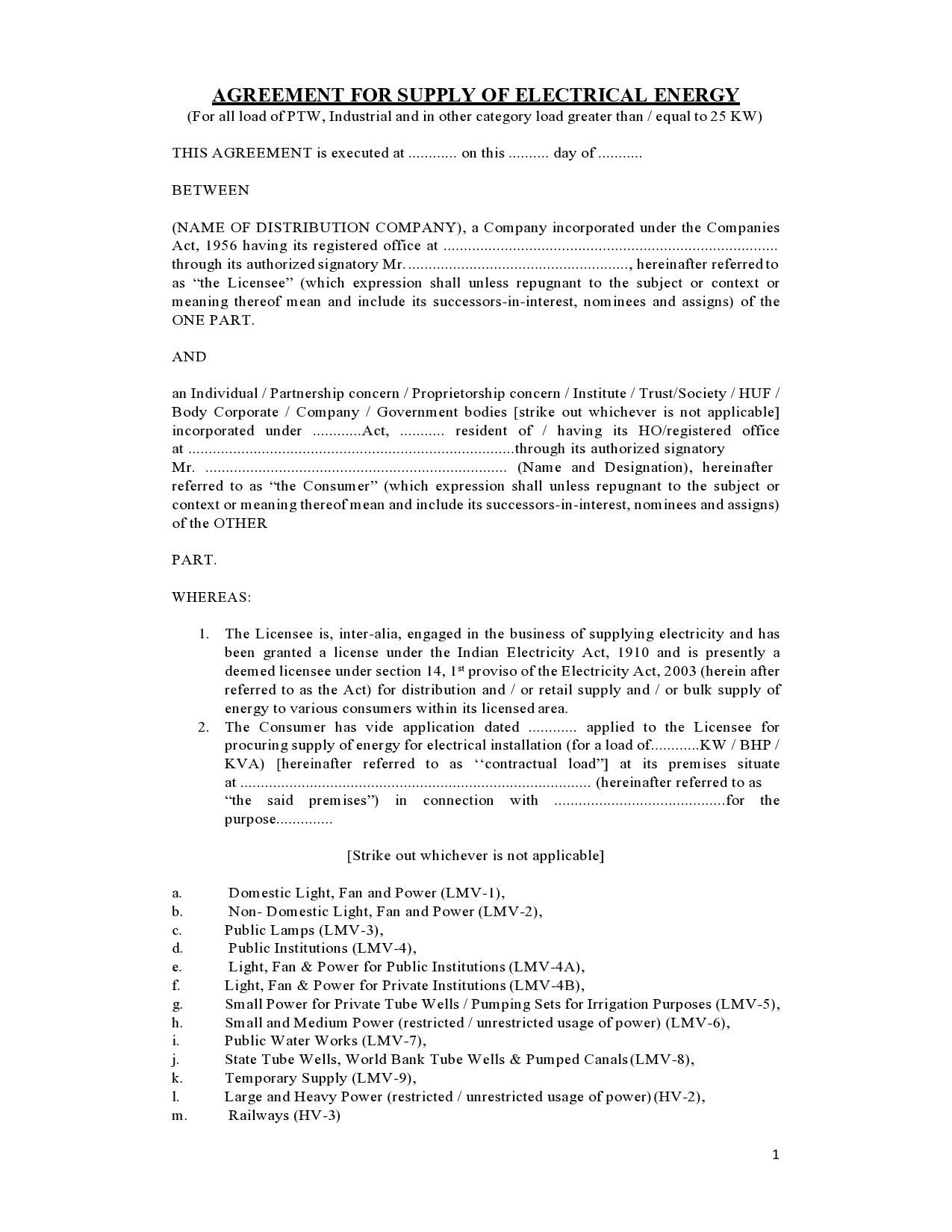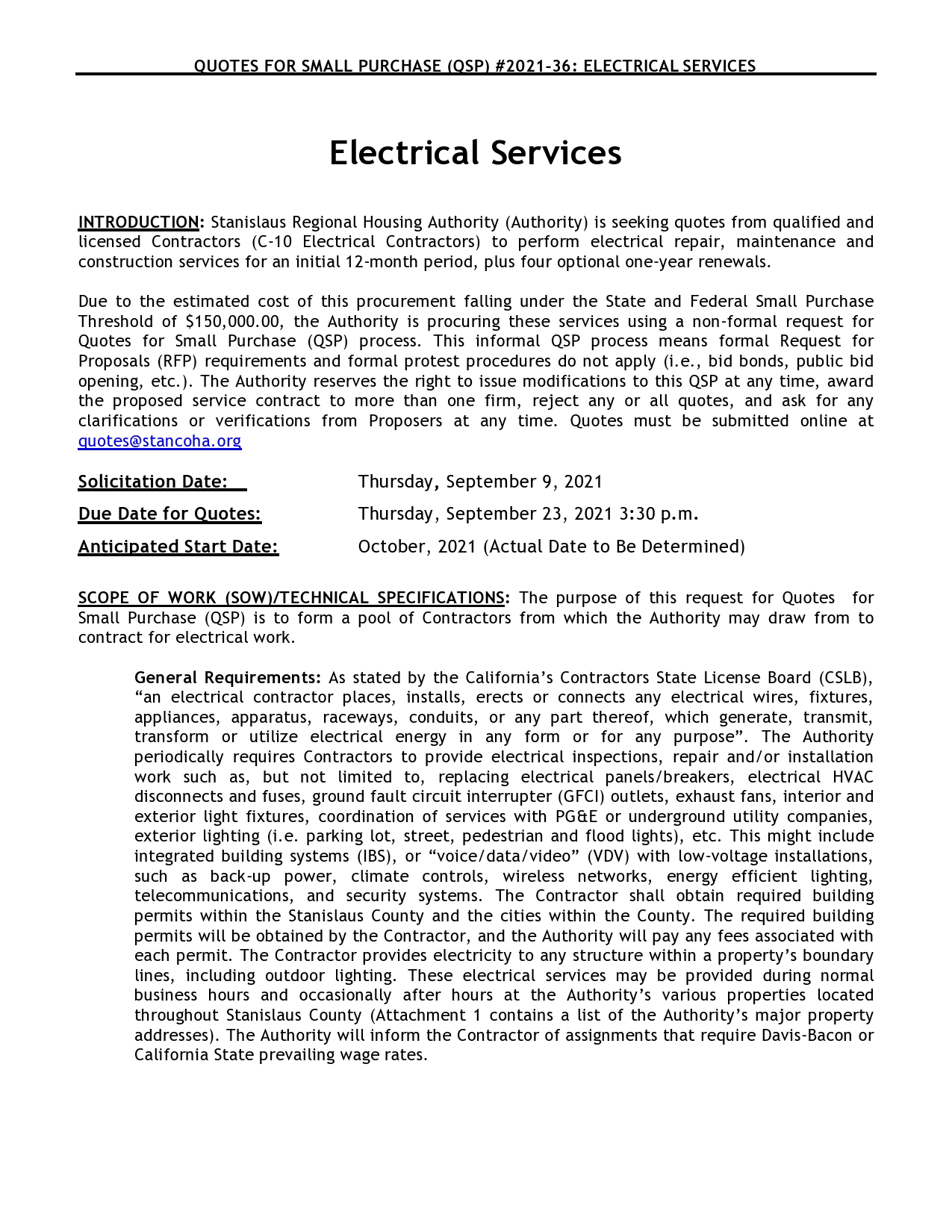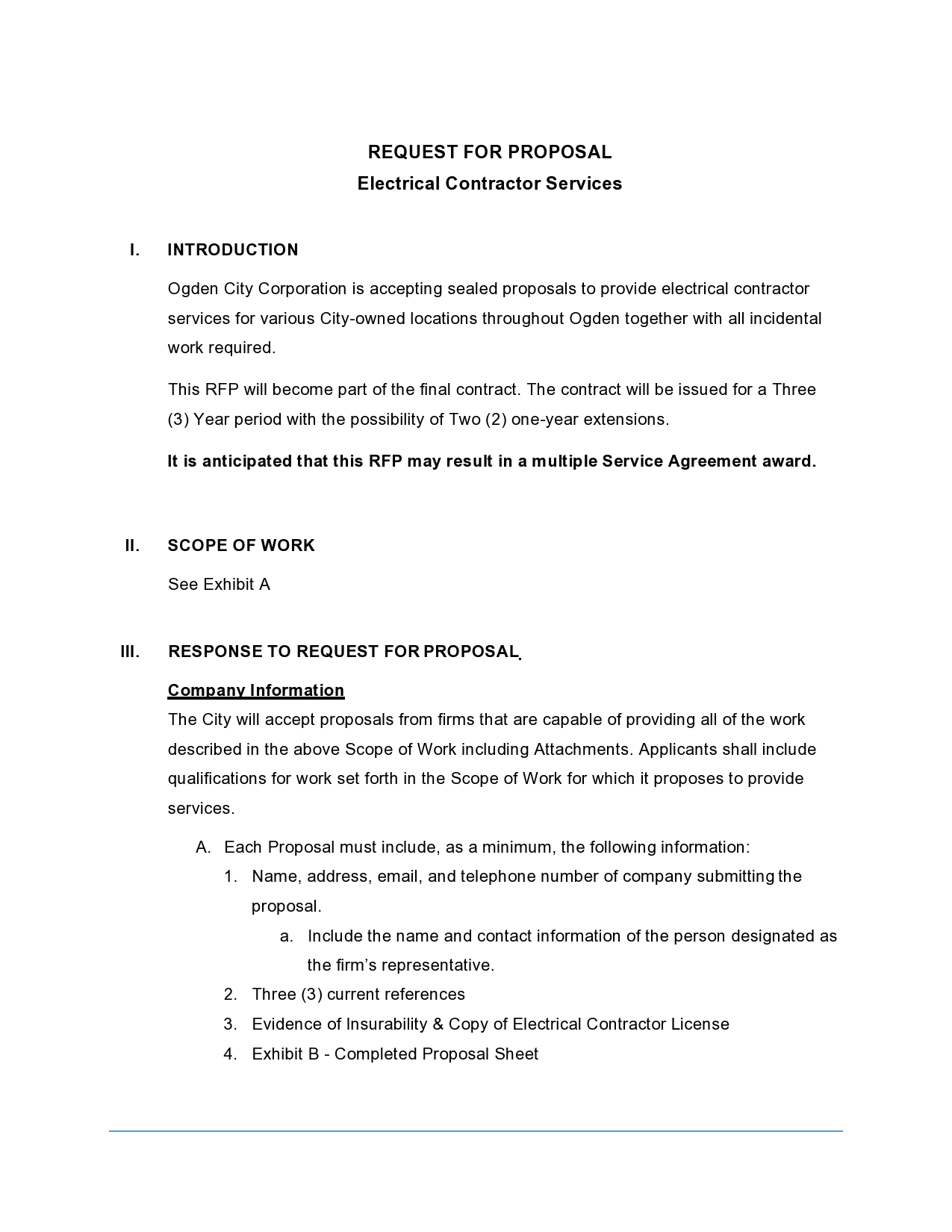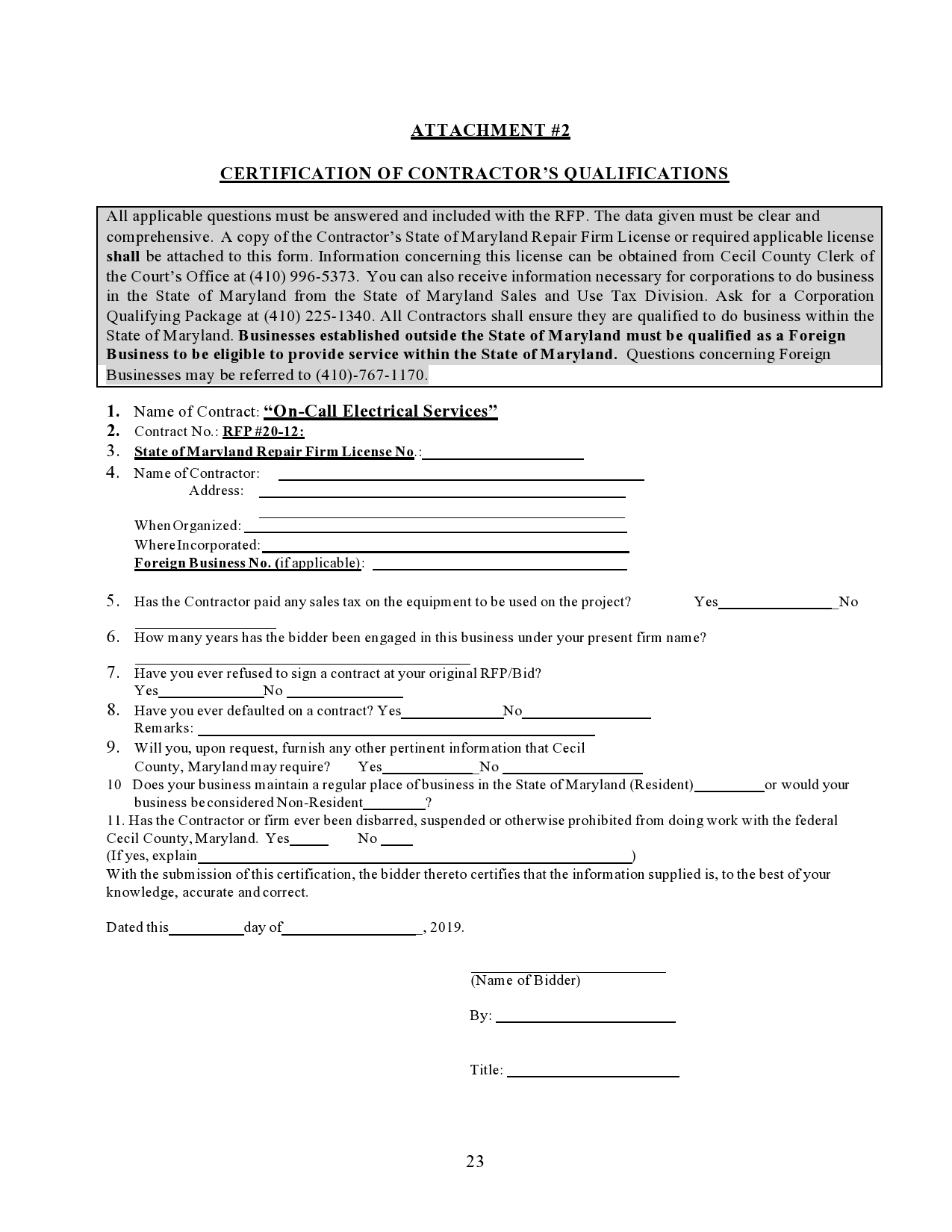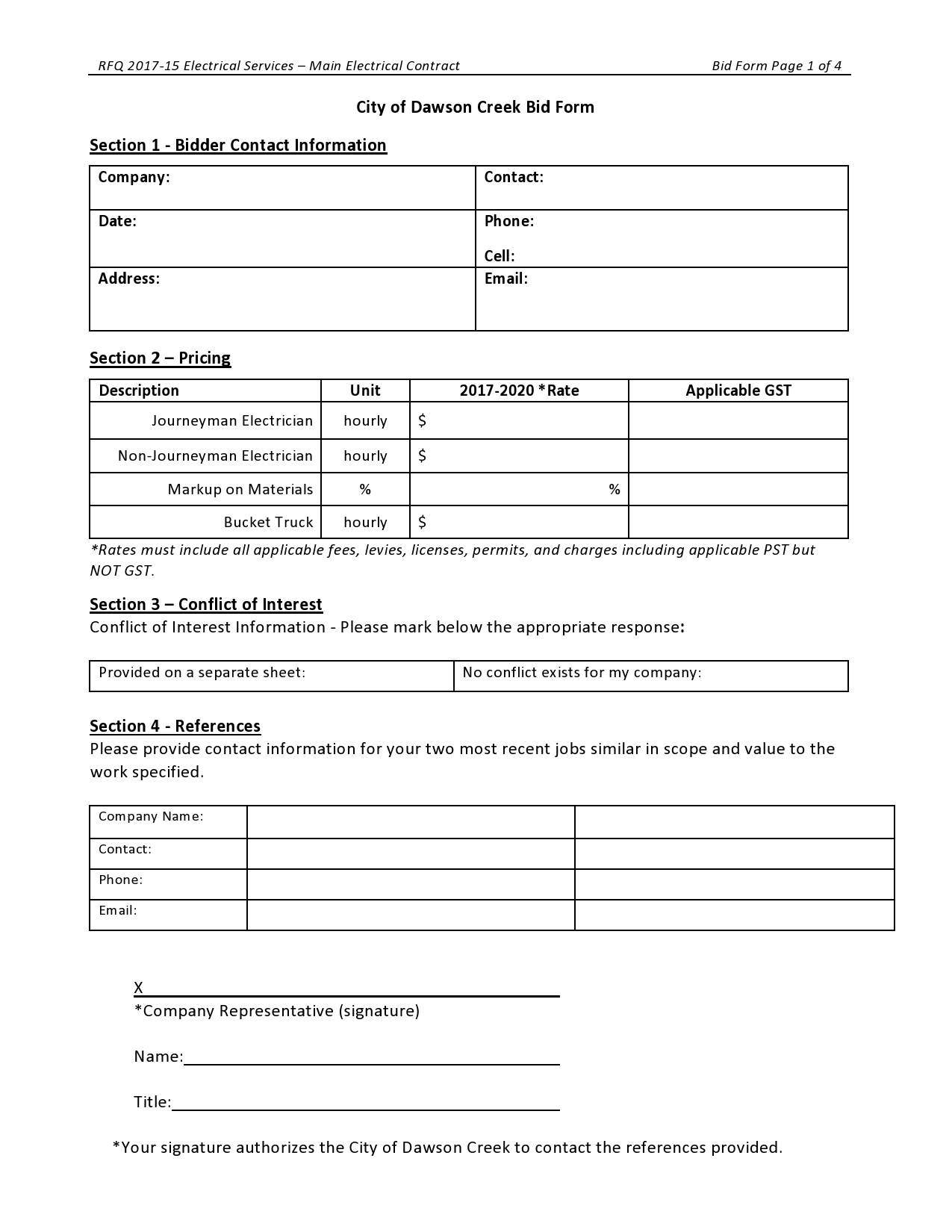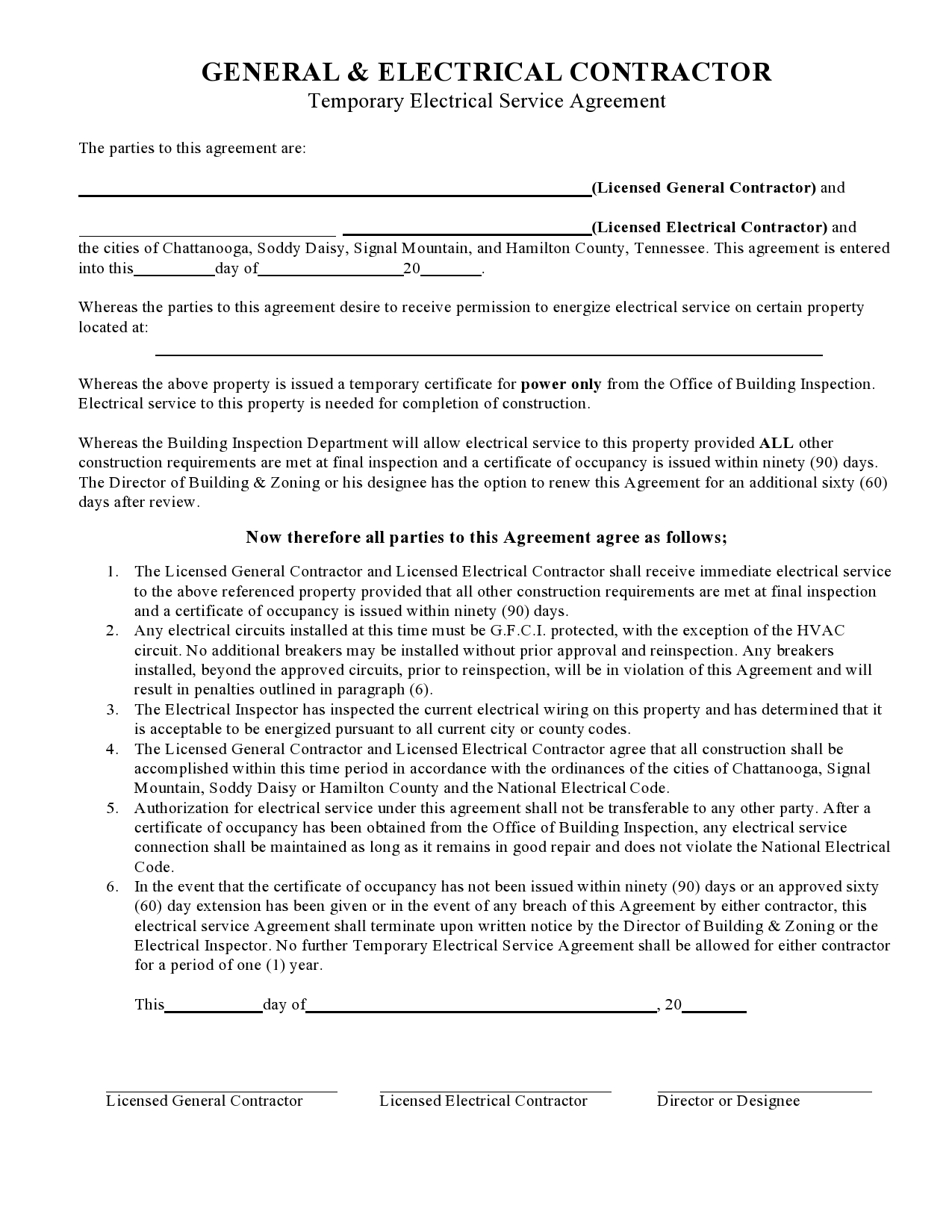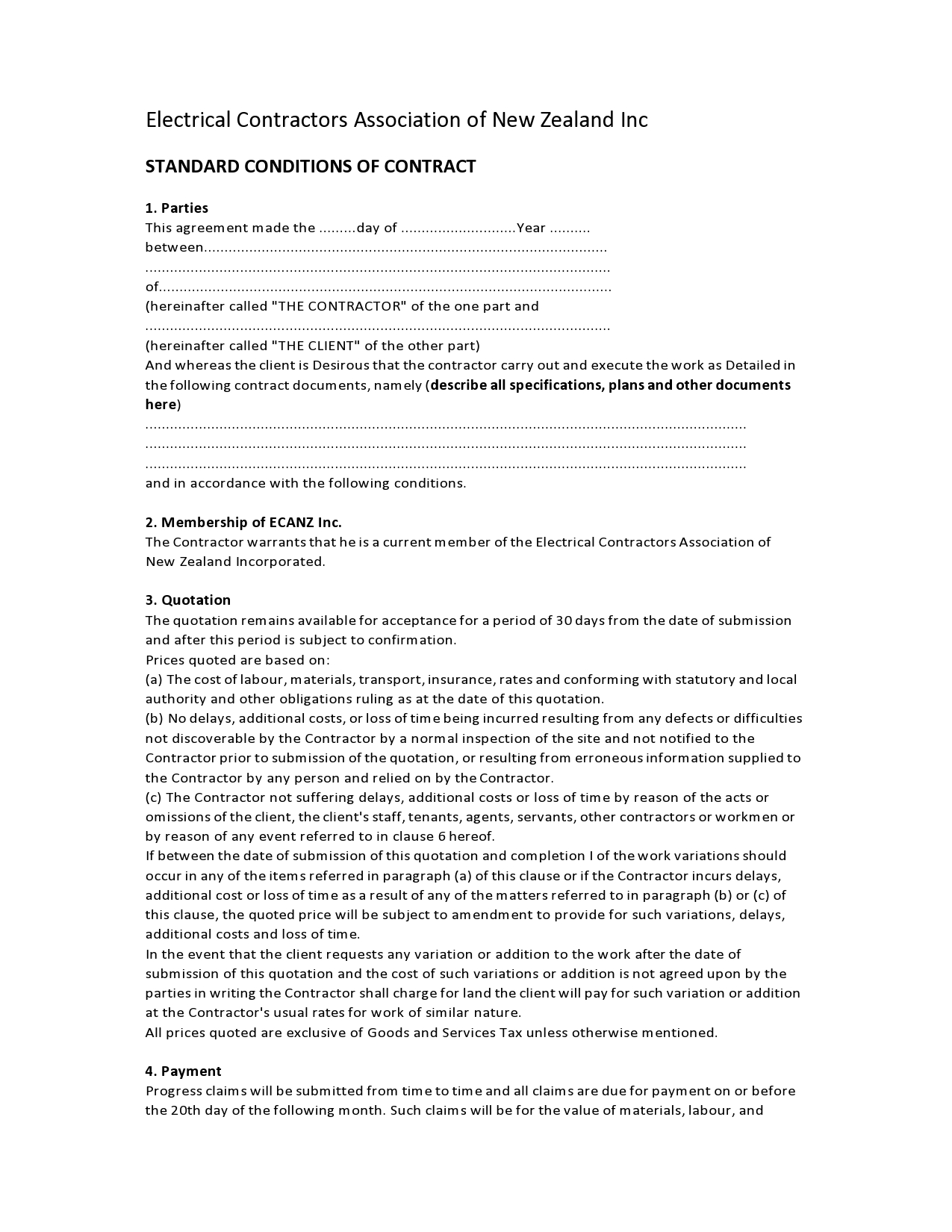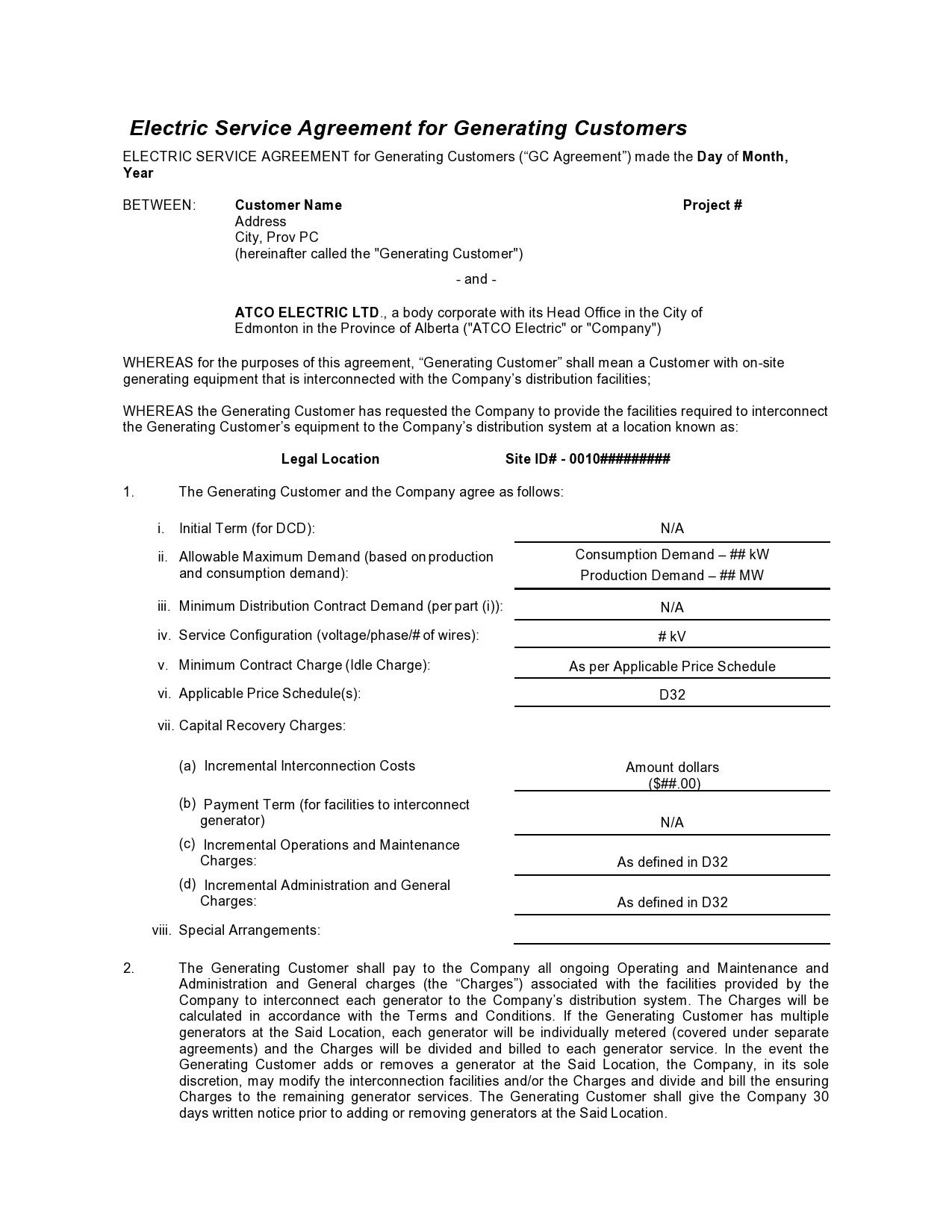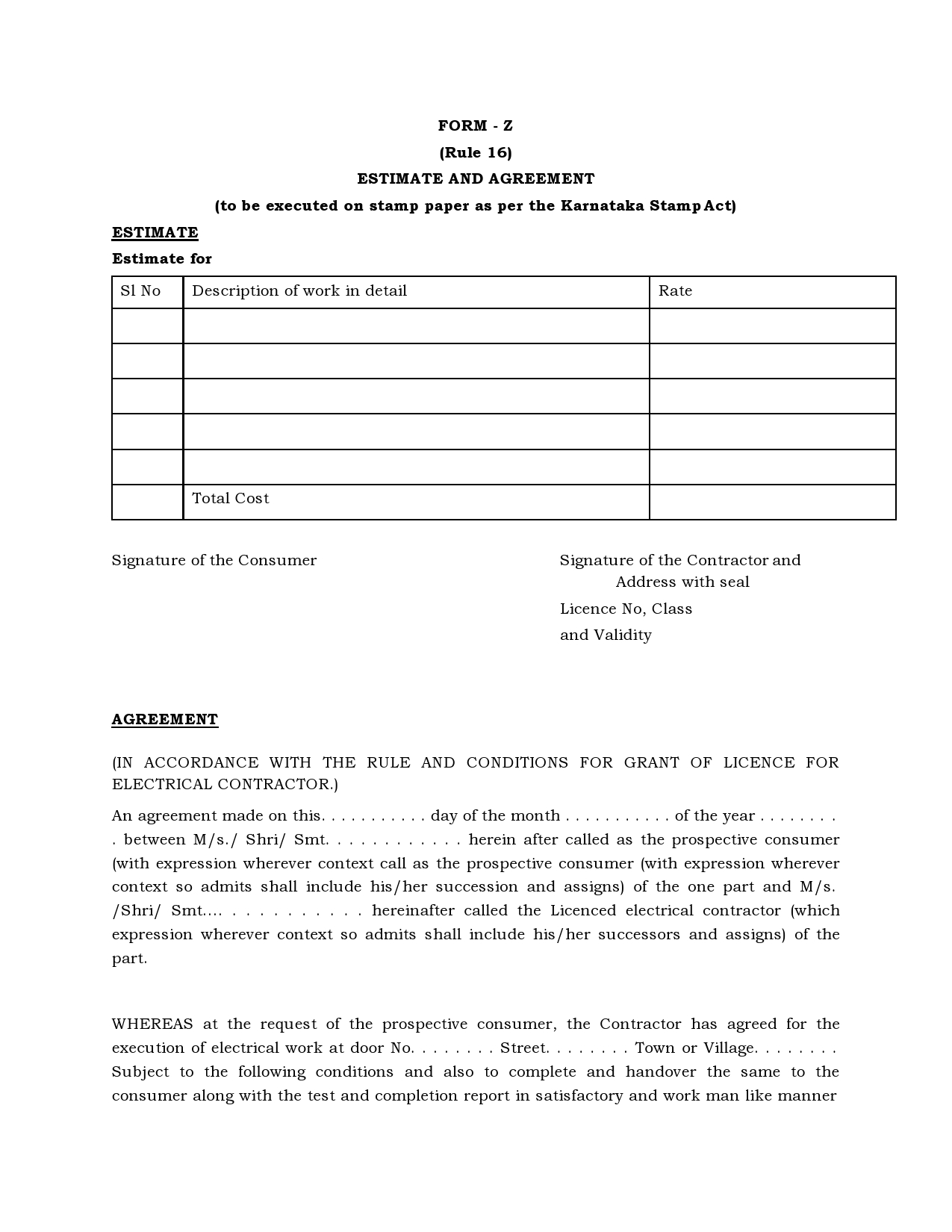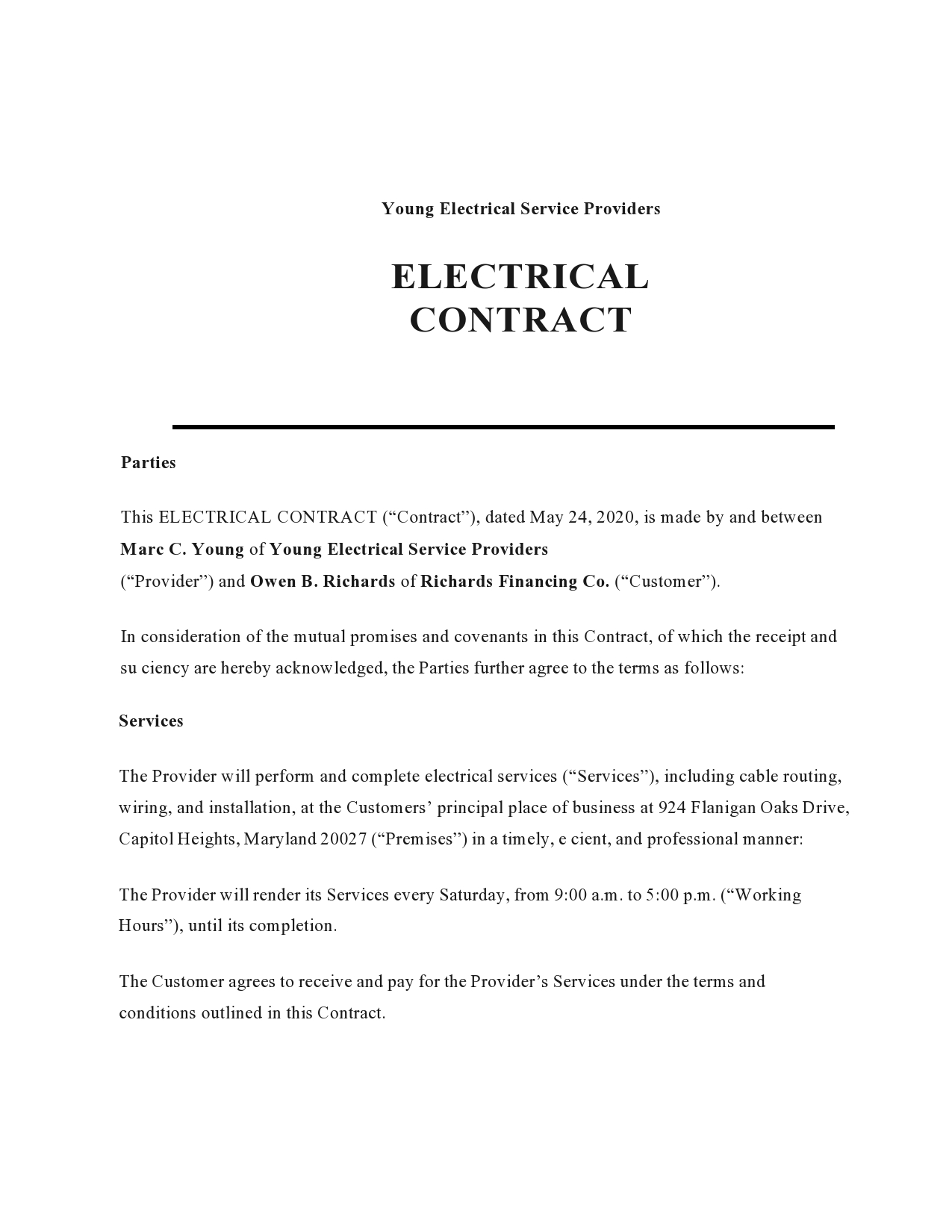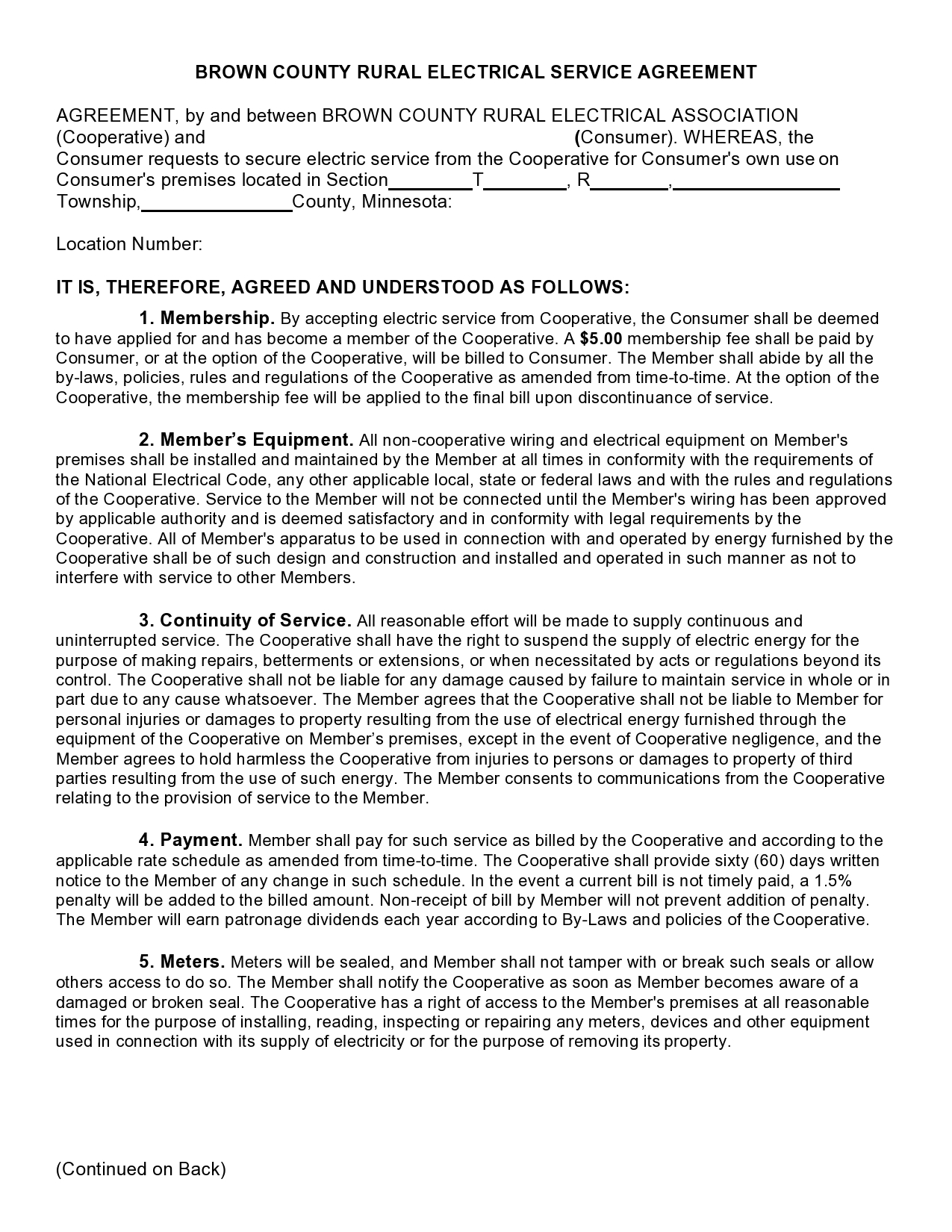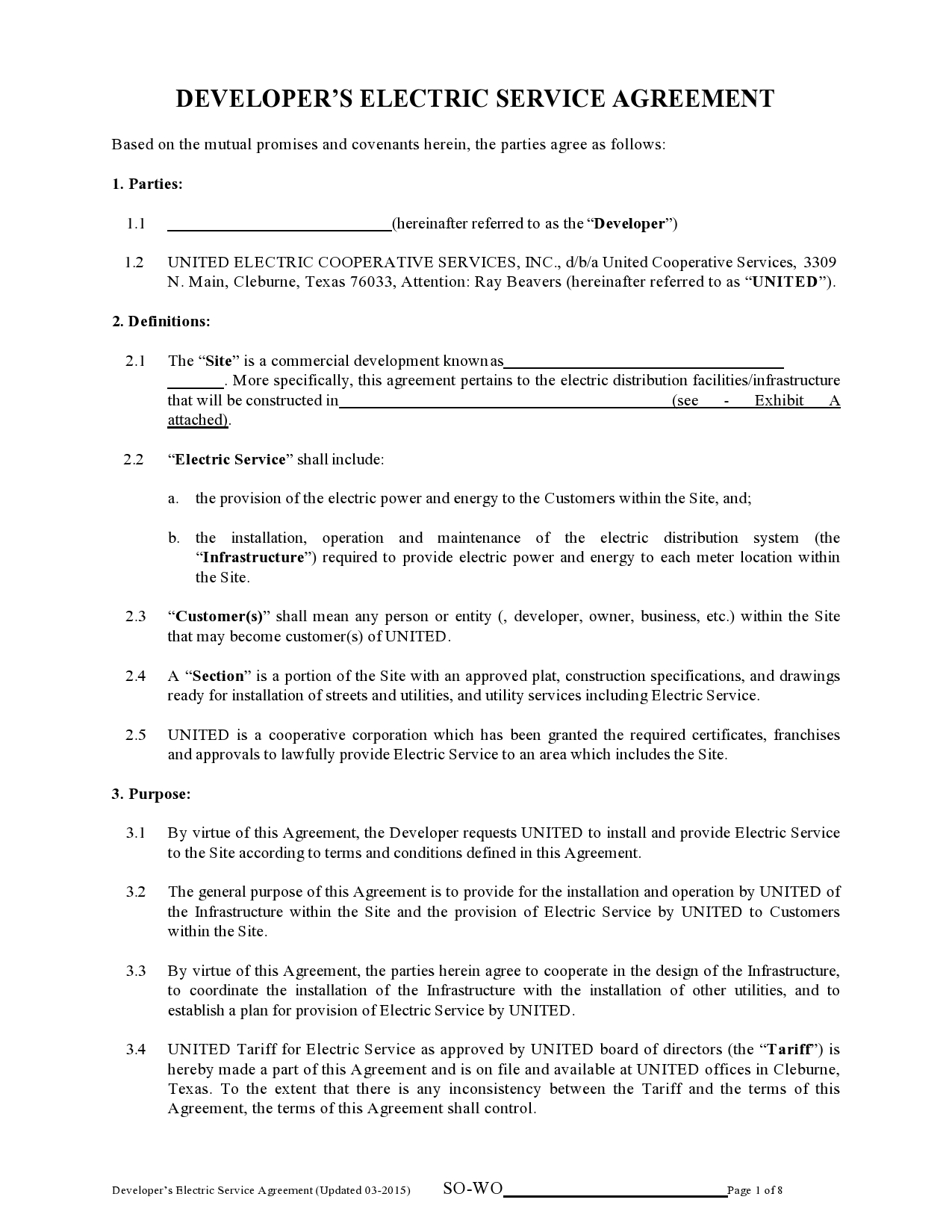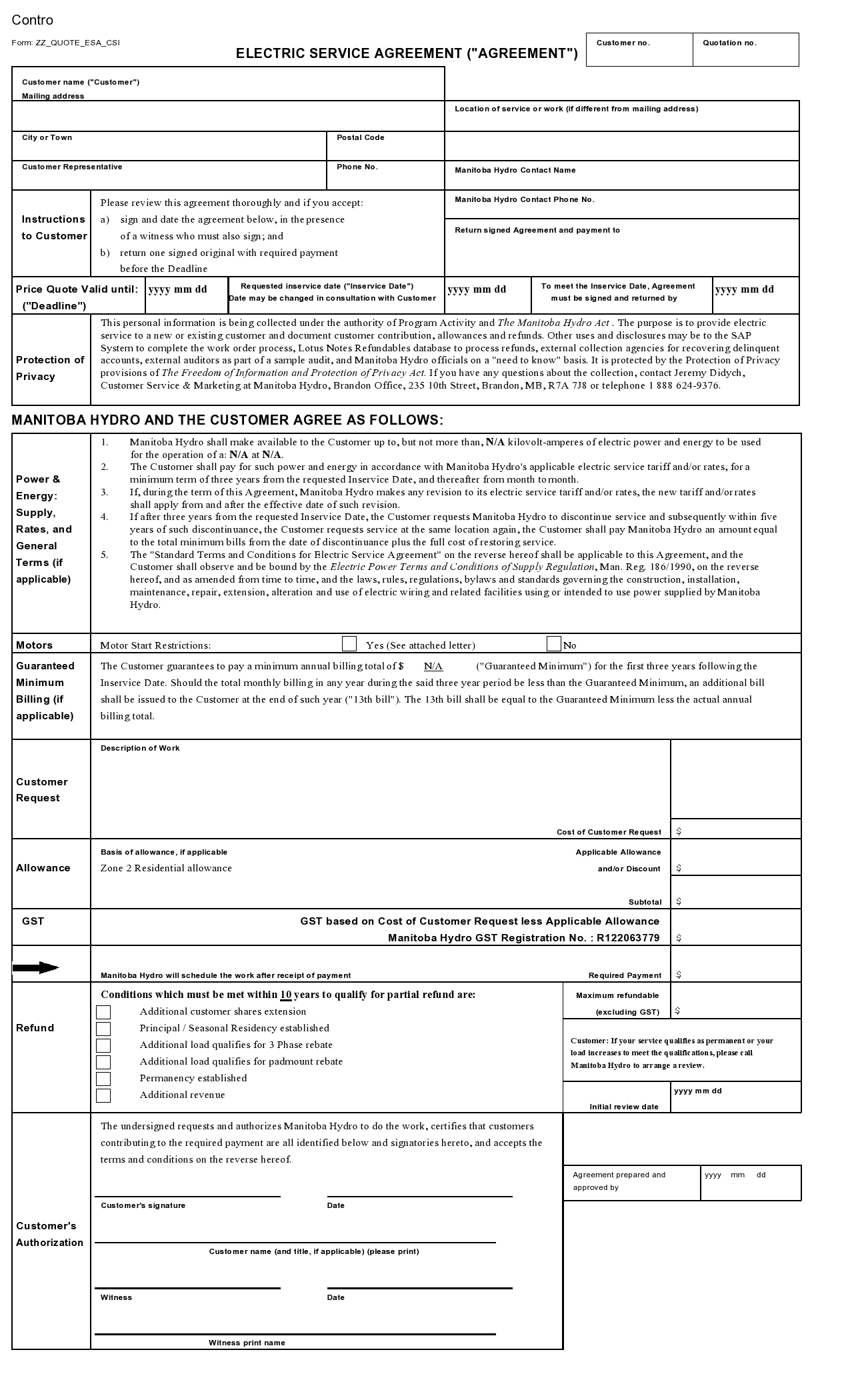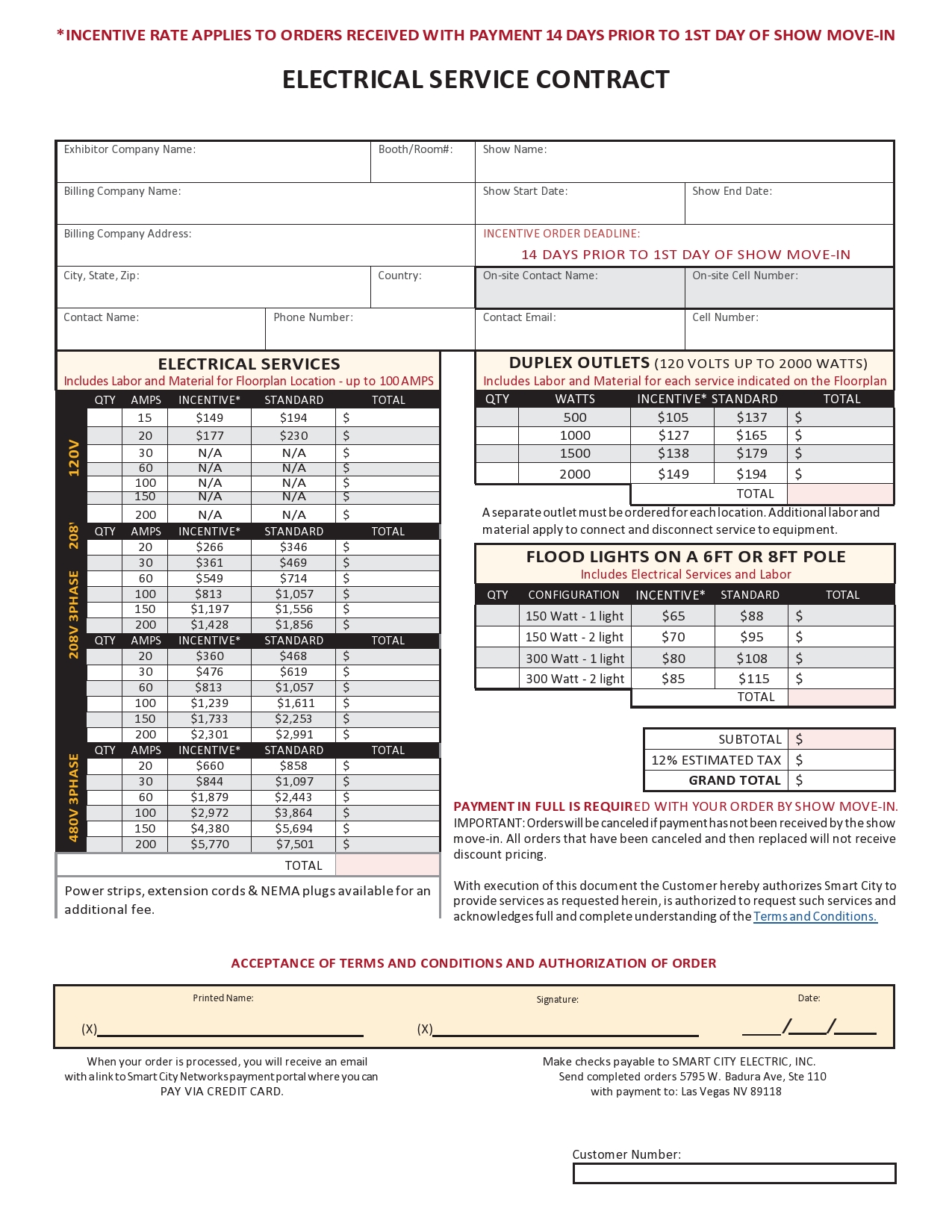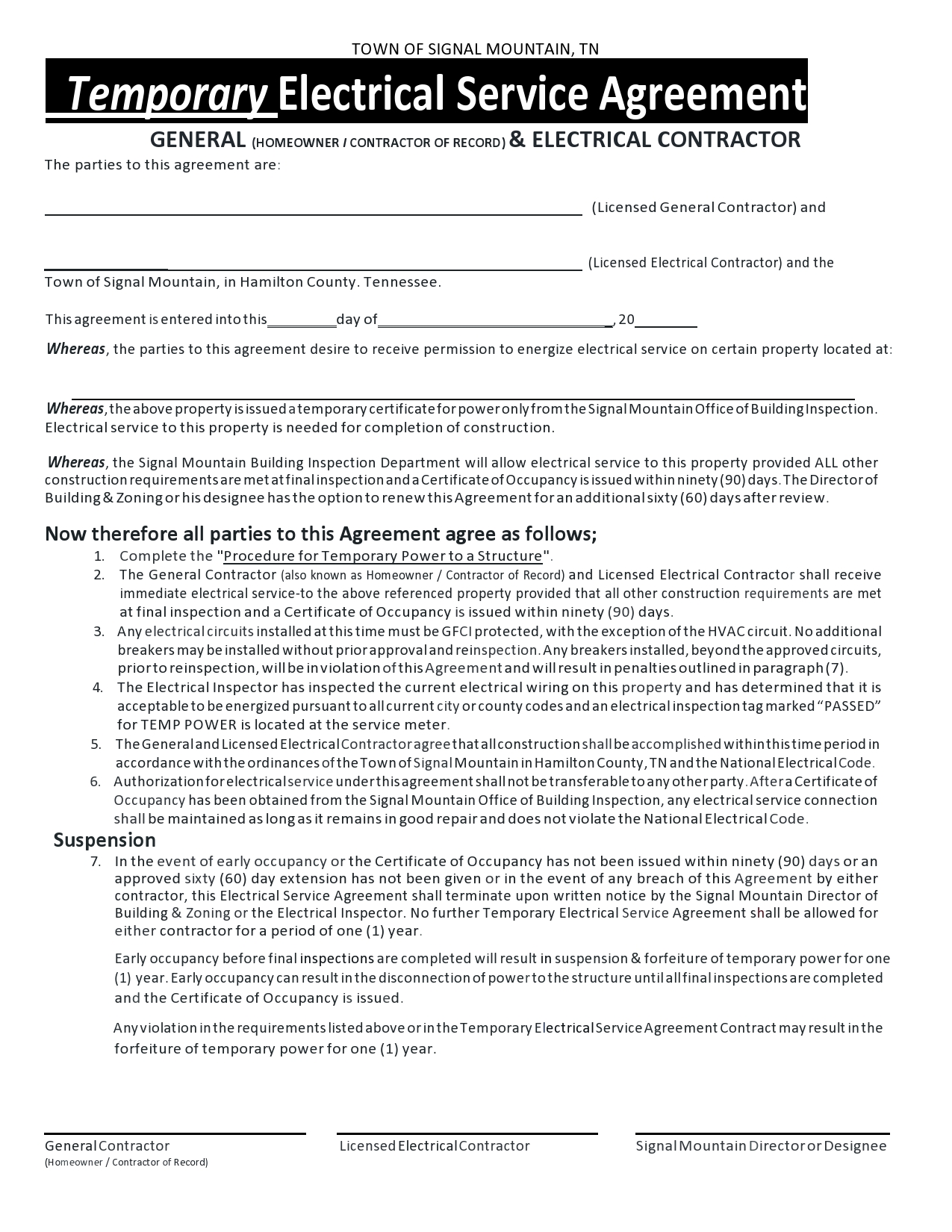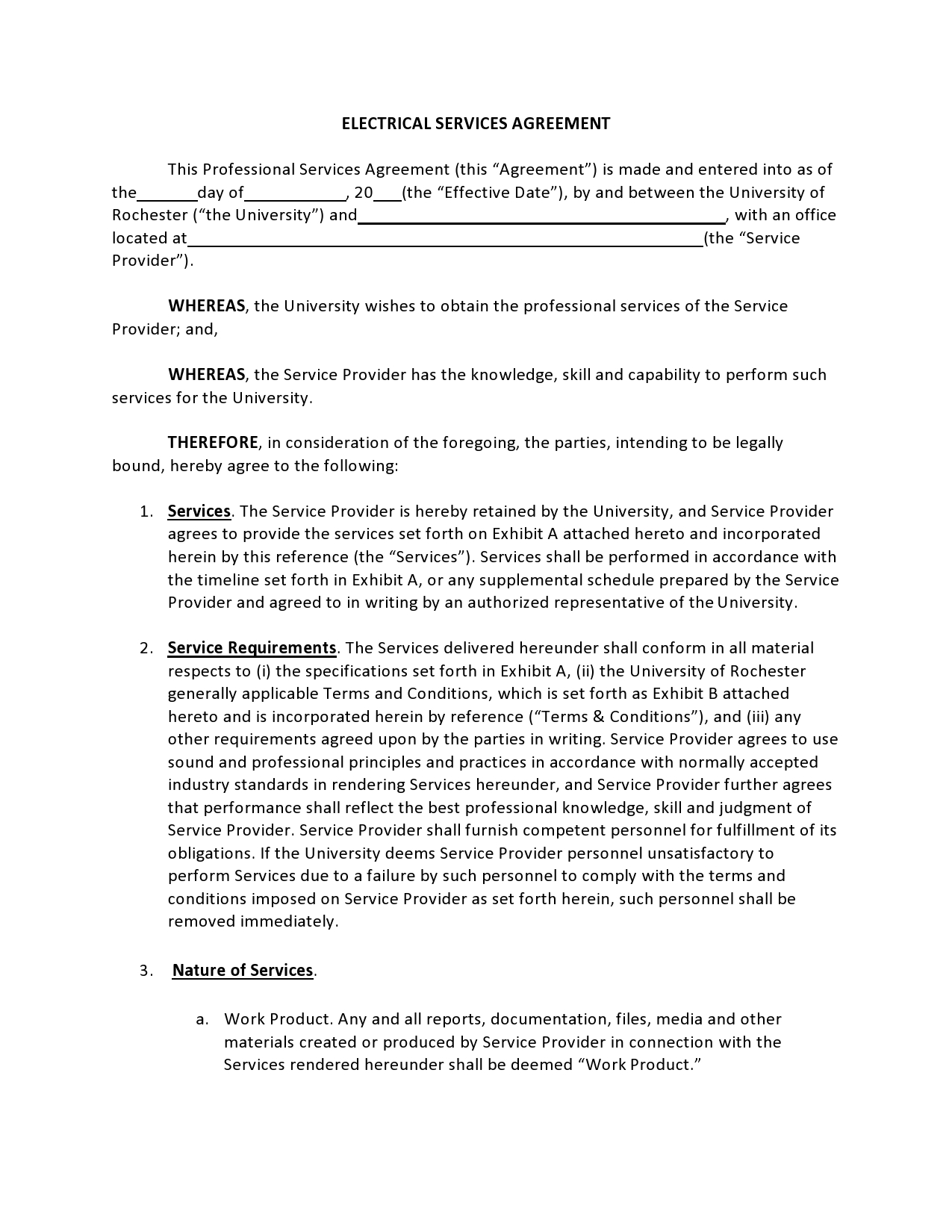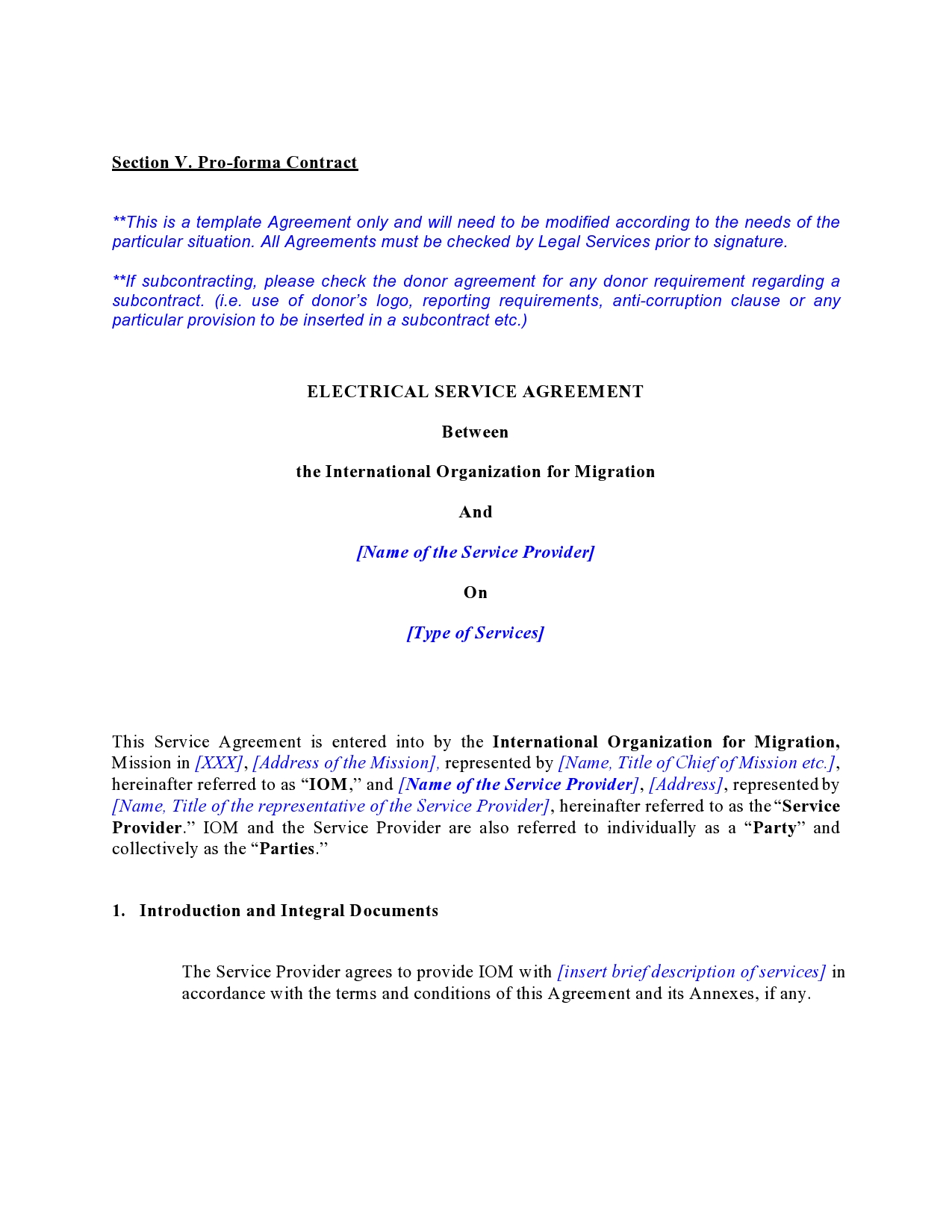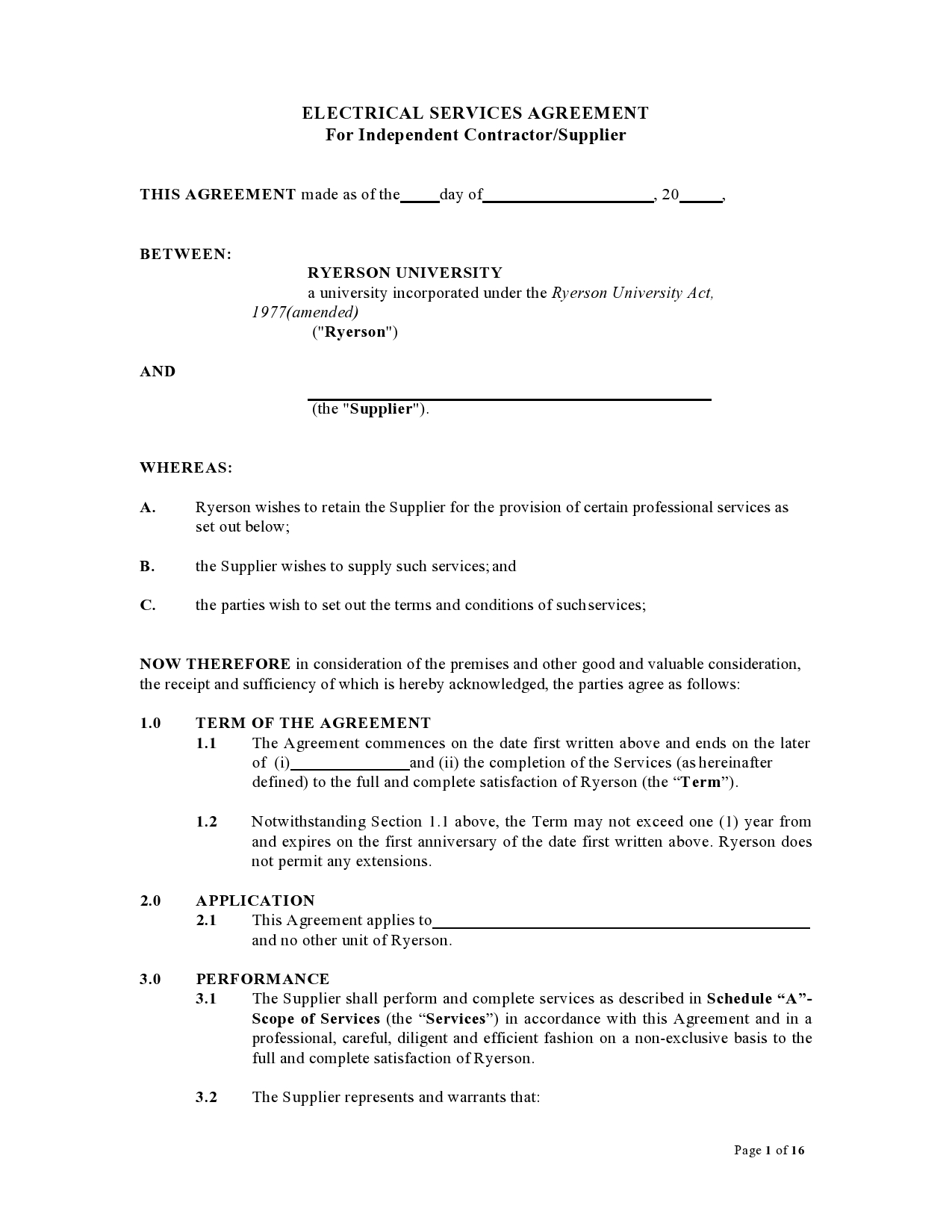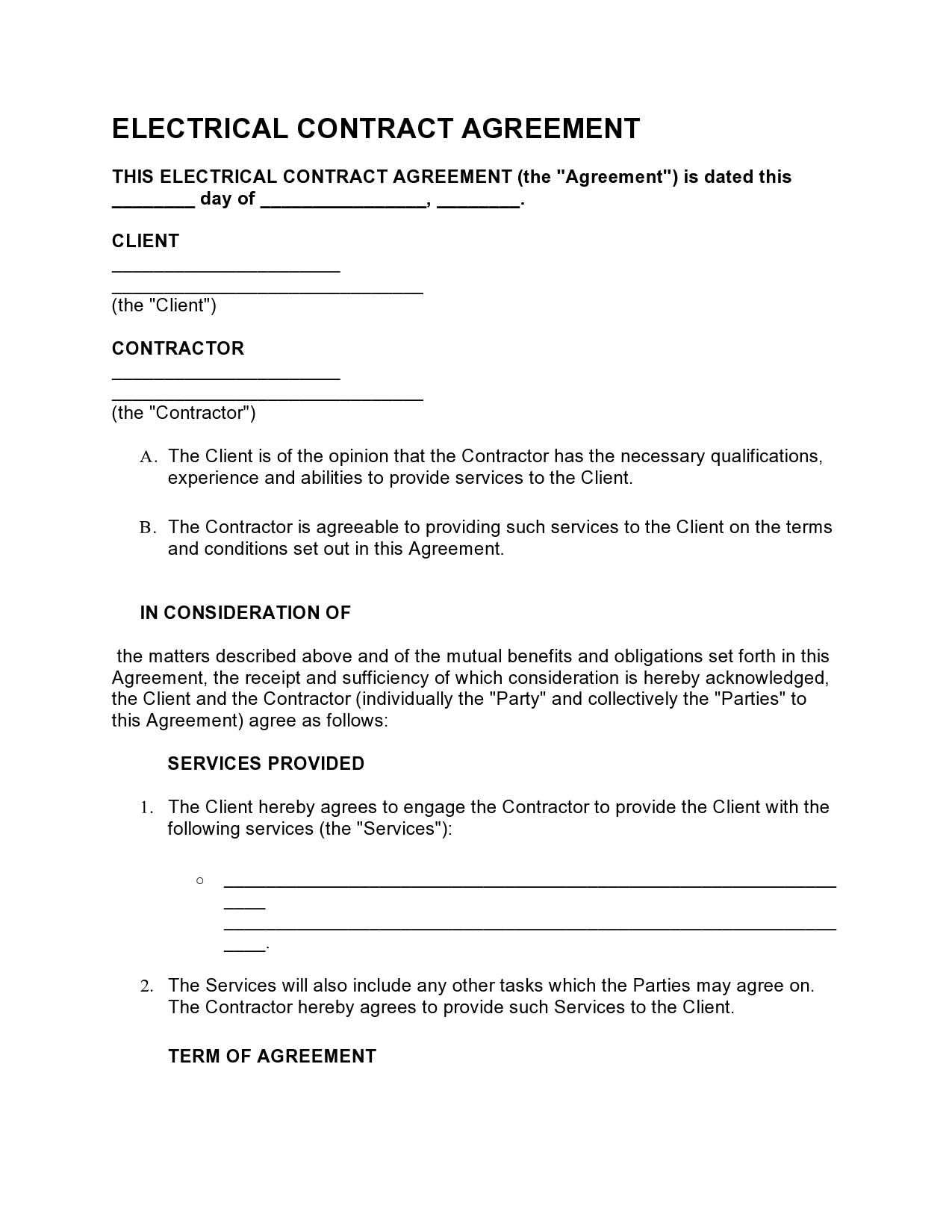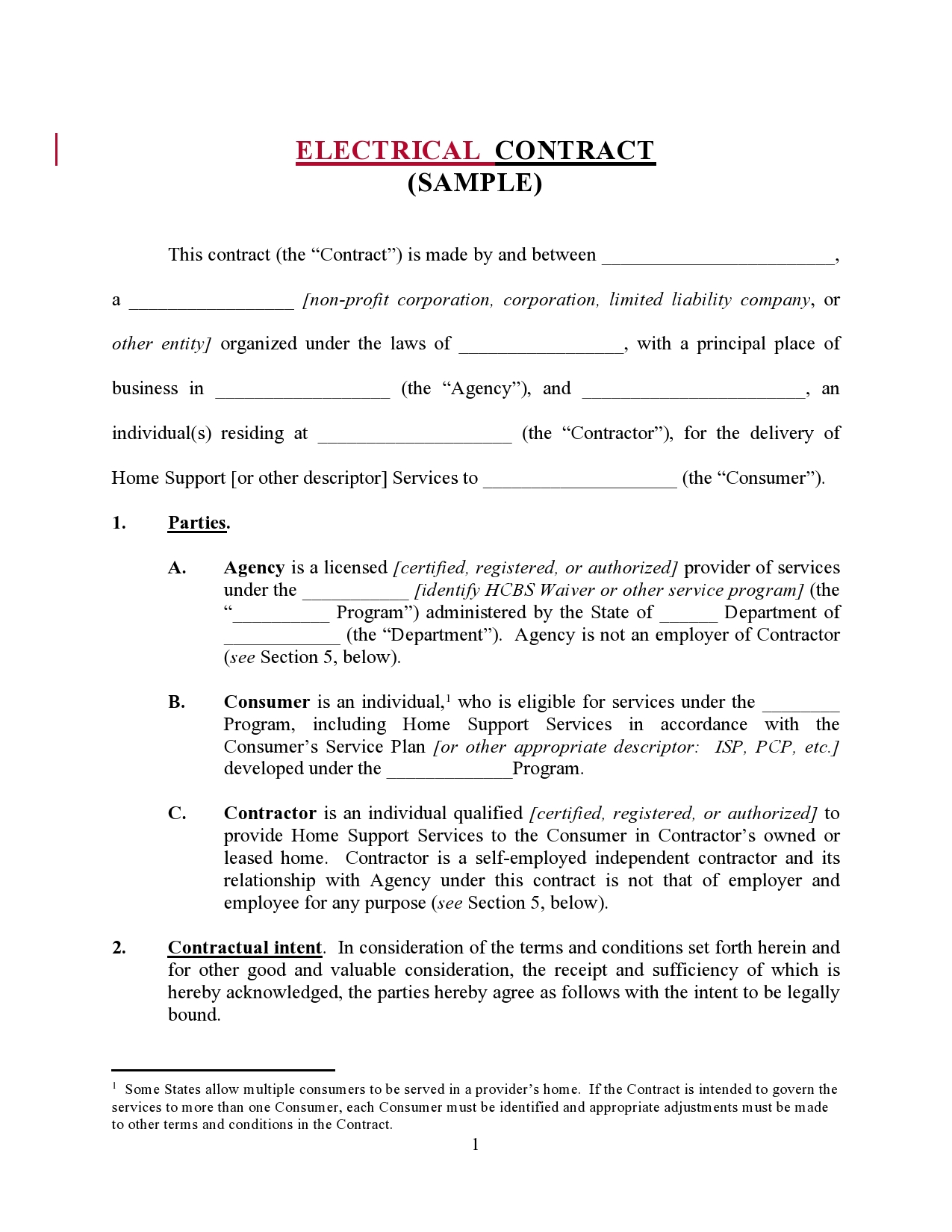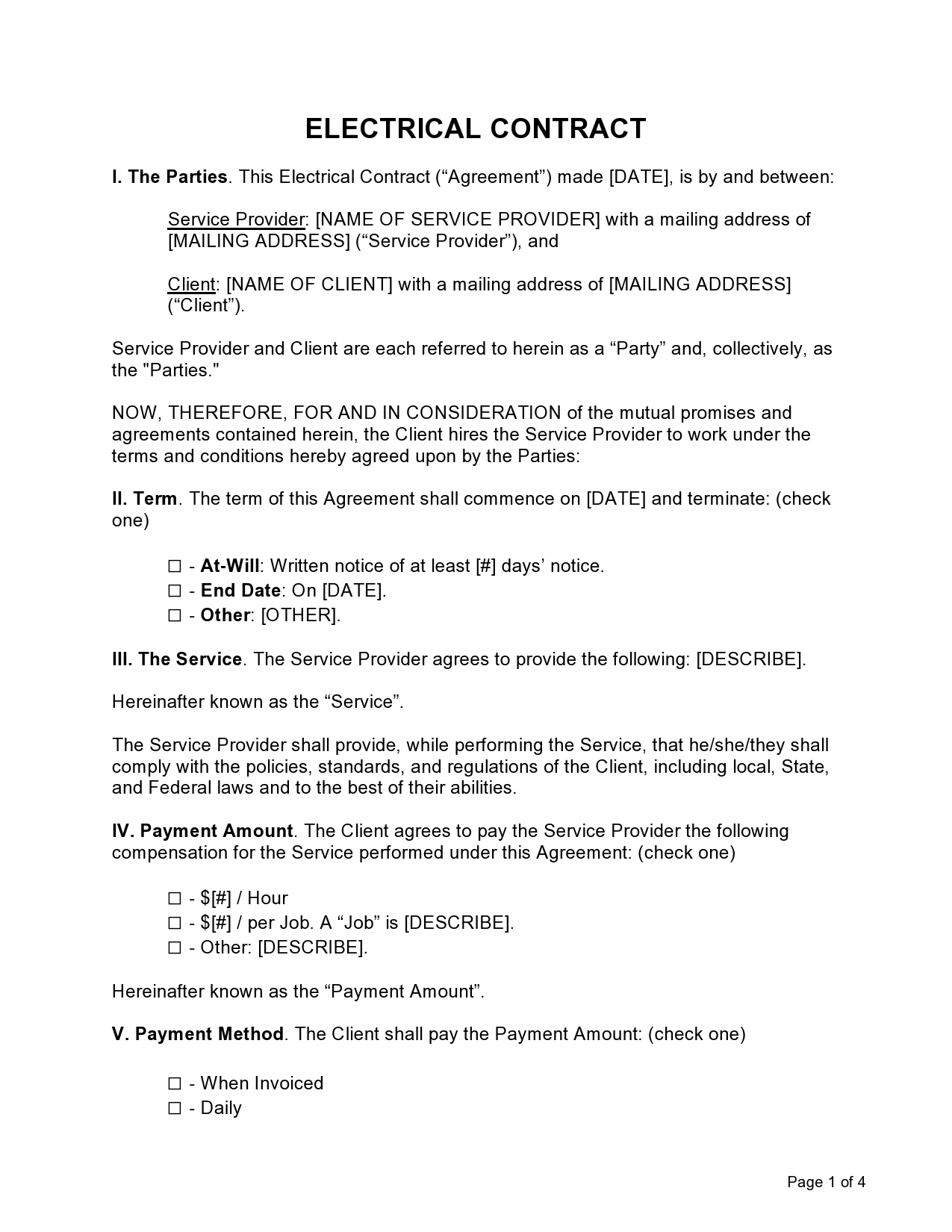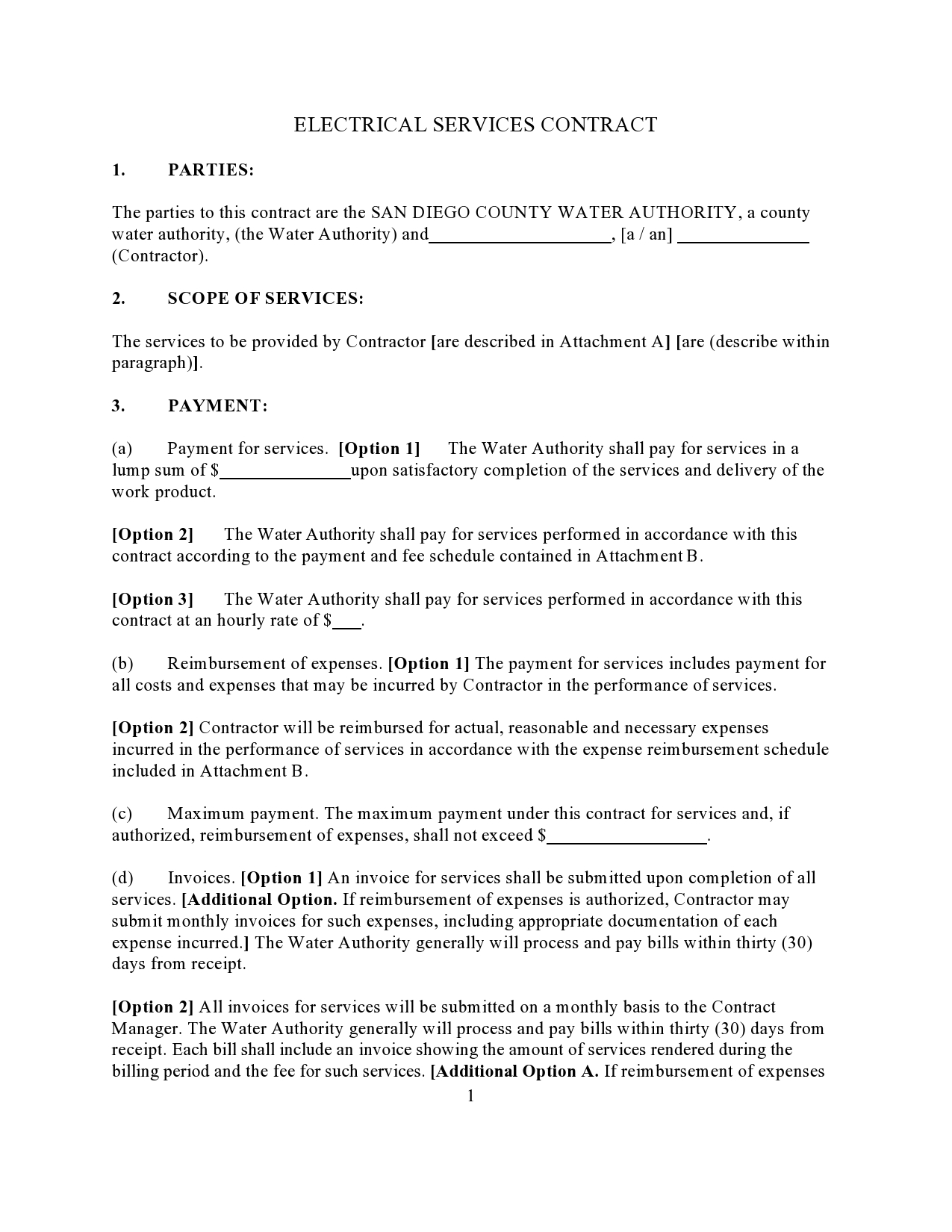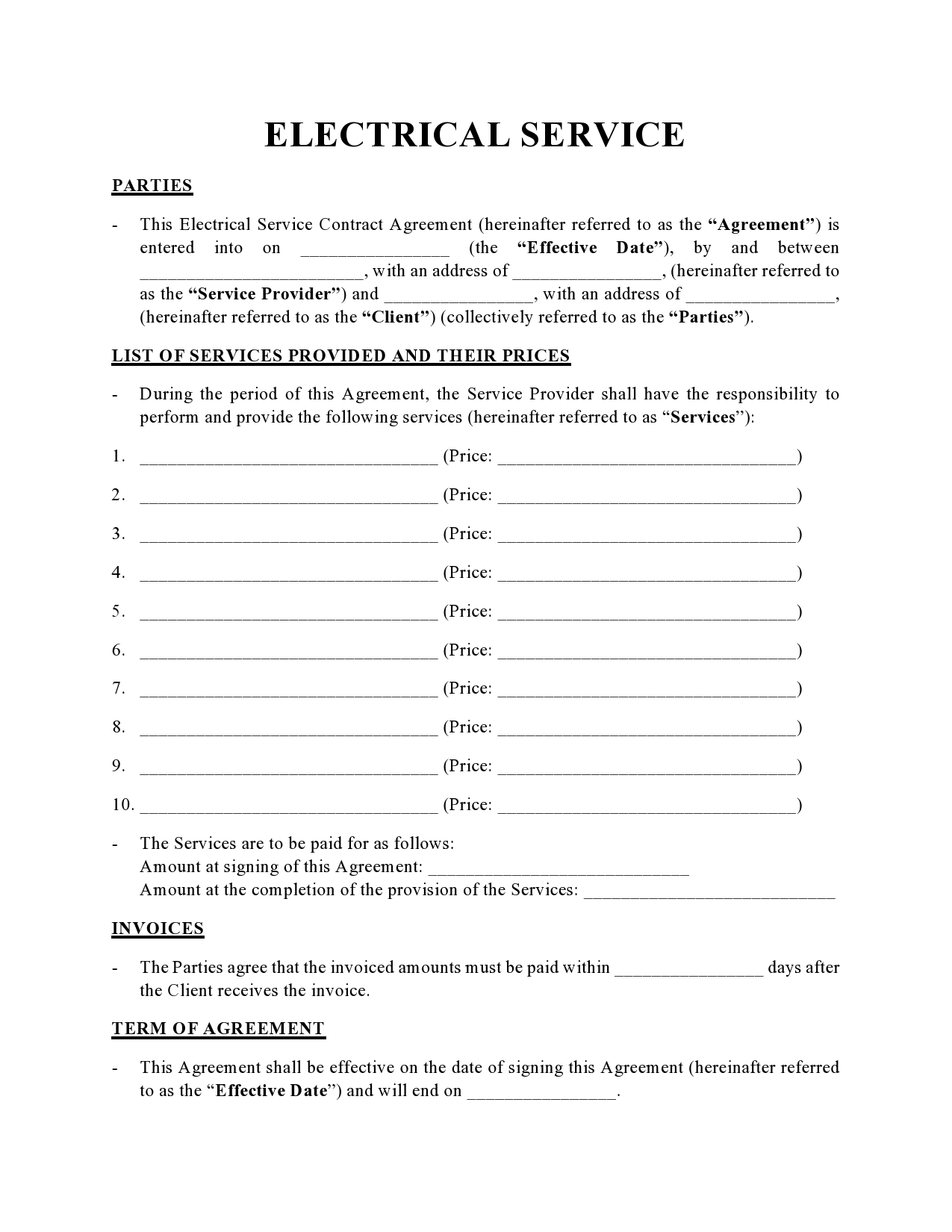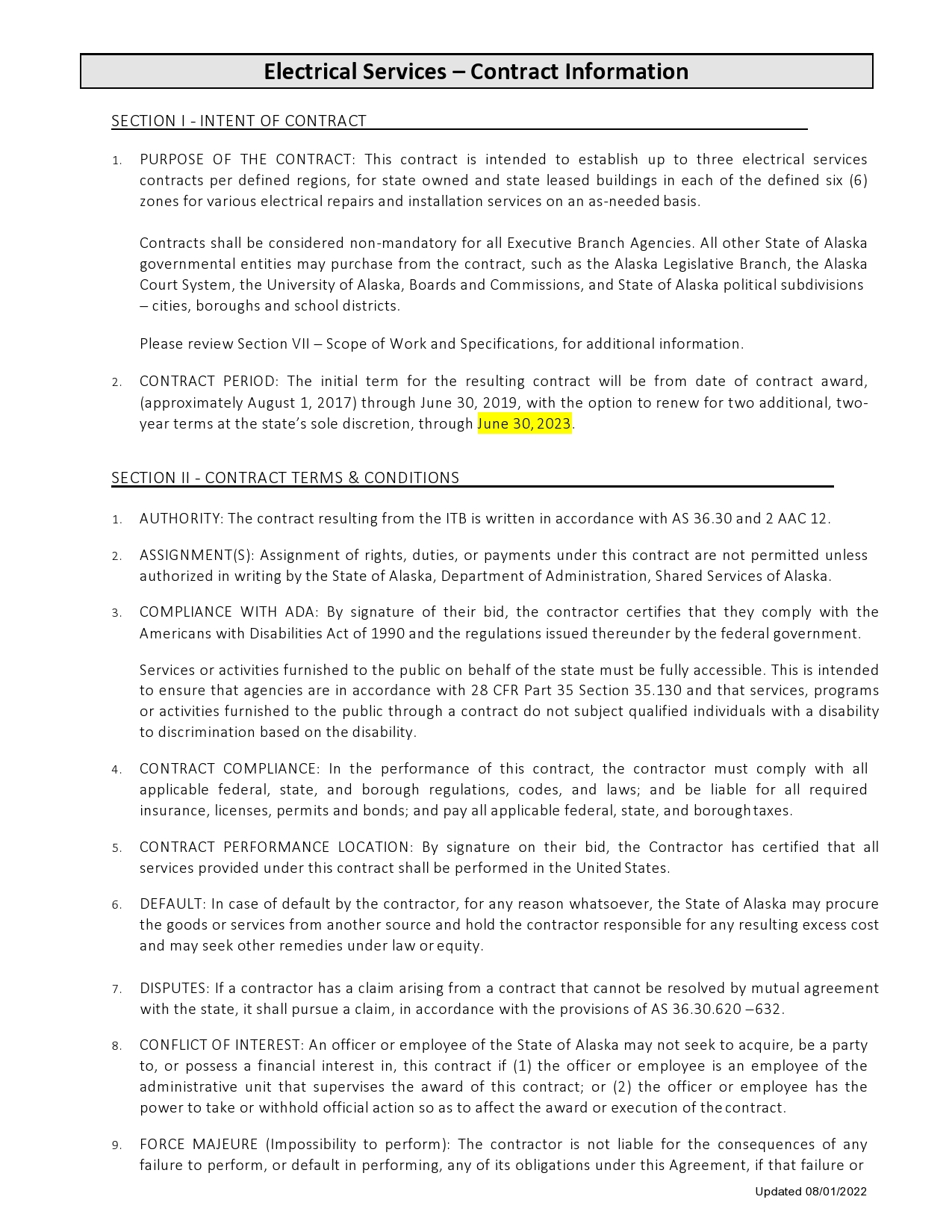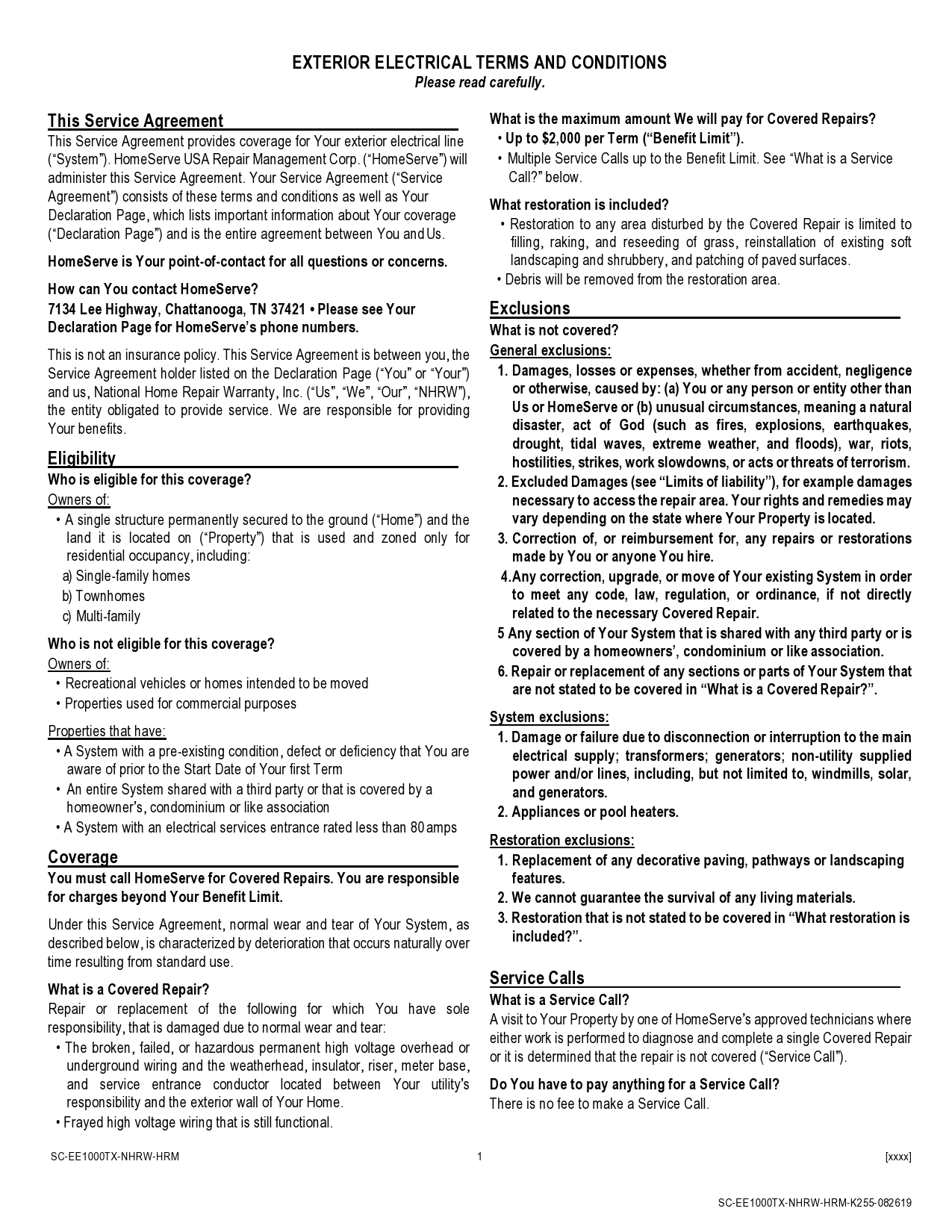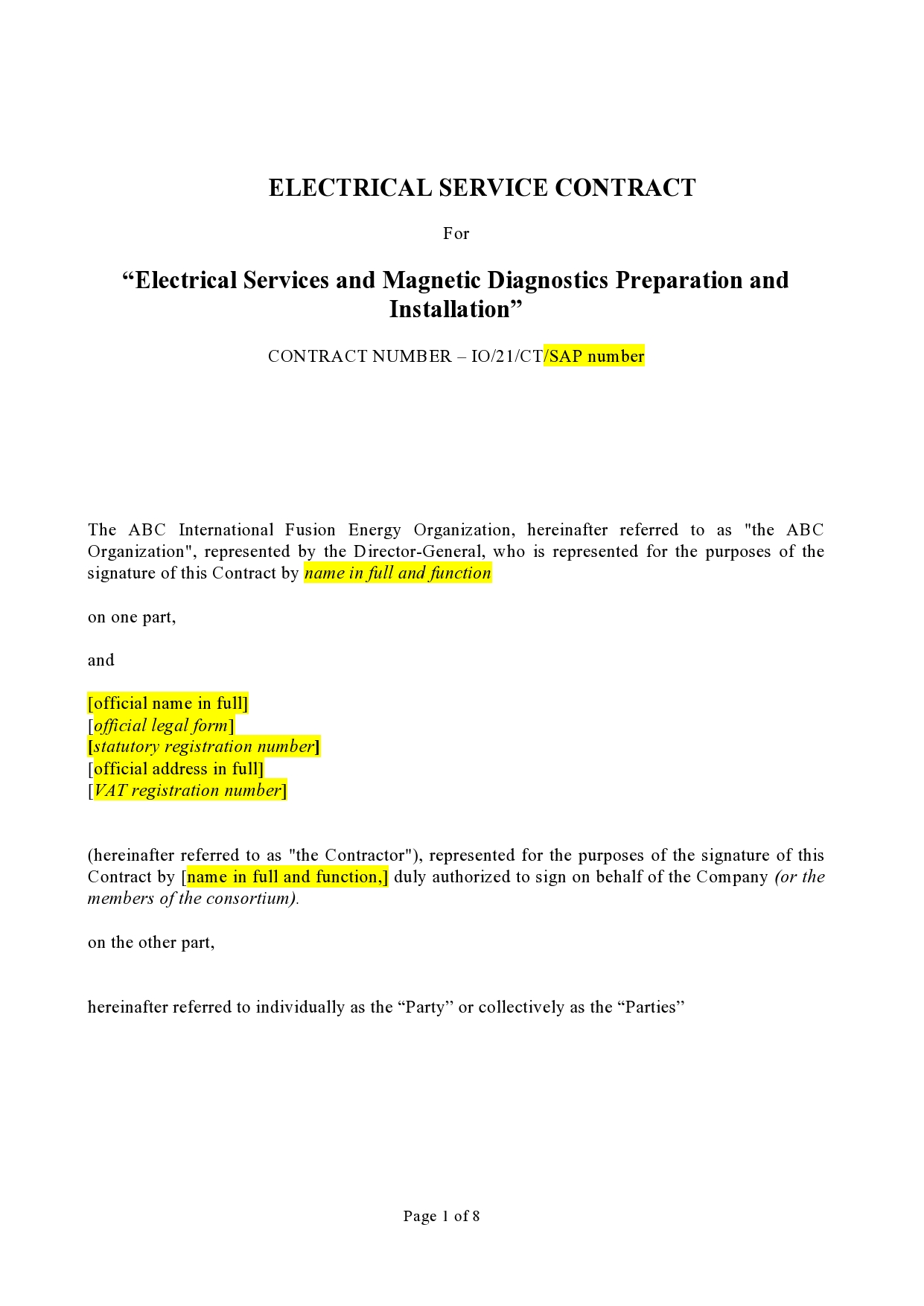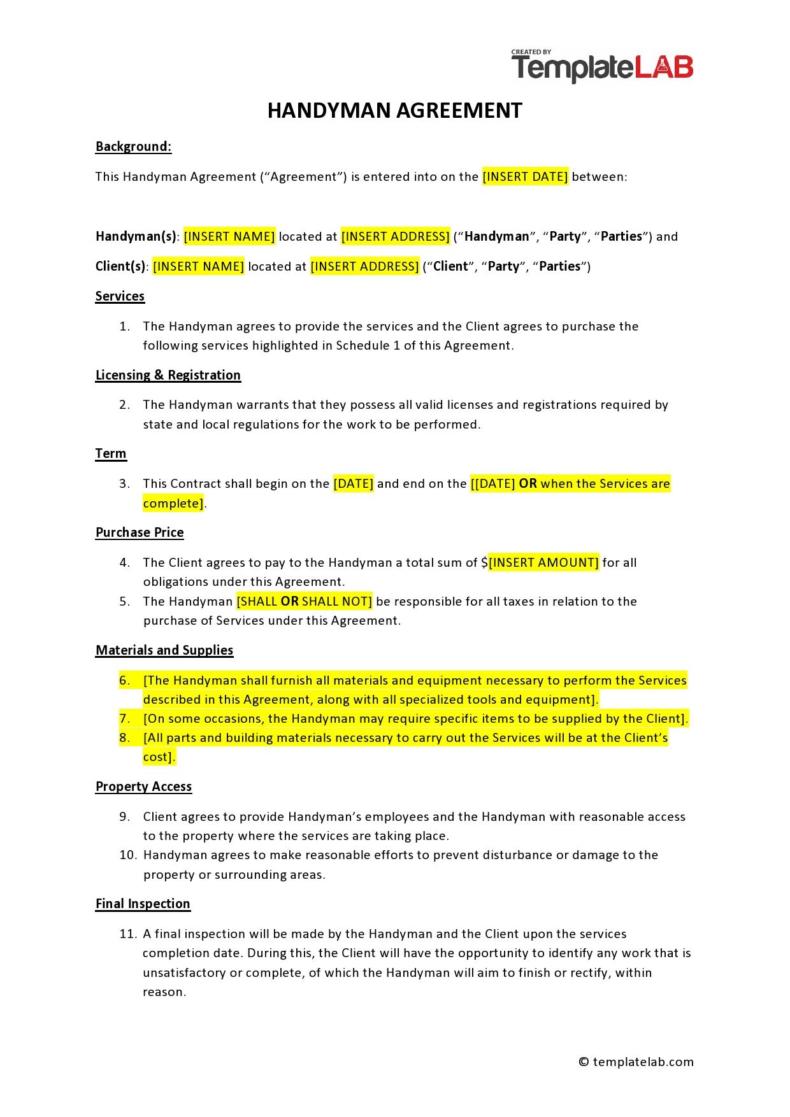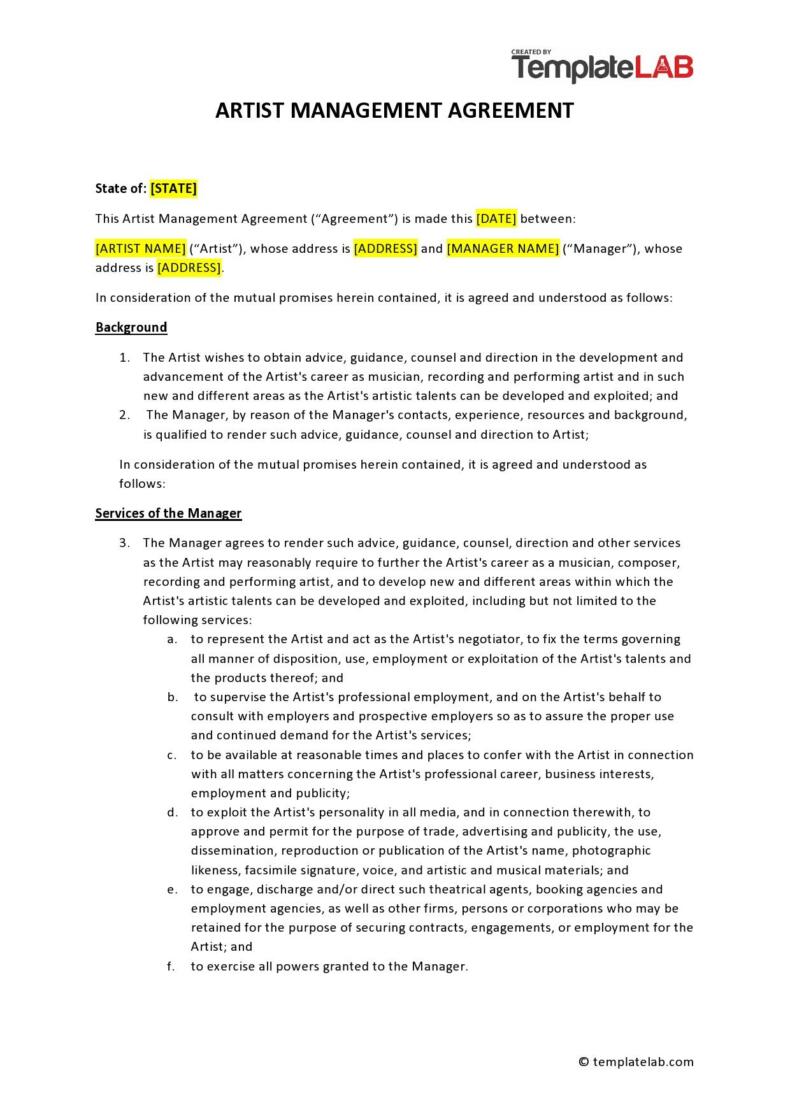If you have been working on drafting an electrical contract template, you have probably already realized that there are many kinds of electrical services contracts out there to look at. Choosing the right electrical contract agreement is important to be sure that your unique form is correctly drafted. Your electrical contract will need to protect you from liability as well as confusion with the client, and you need to make sure that you have created it correctly for these reasons.
When looking at electrical contract form styles, make sure that you consider the purpose of the agreement you are making as well as the legal protections that you want to have in place when you are working on a job. There are various details that you might want to include that are not covered in simple electrical contracts. Exposing your business to risk is not necessary if you are prepared to draft a proper electrical contract.
Table of Contents
- 1 Electrical Contract Templates
- 2 What Is The Purpose of An Electrical Contract?
- 3 Electrical Contract Forms
- 4 What Are The Benefits of an Electrical Contract?
- 5 Electrical Contract Agreements
- 6 How Do You Create An Electrical Contract?
- 7 Electrical Services Contracts
- 8 Electrical Contracts Are Essential For Your Business
Electrical Contract Templates
What Is The Purpose of An Electrical Contract?
The electrical subcontractor or electrical contract that you draft needs to provide a variety of legal protections for your jobs, and it also needs to define the contractor and client relationship. Handshake deals are never the right choice to make when you are trying to make money as an electrical contractor. Your electrical contract makes it clear what services you are providing as well as the cost of the job and the deadlines that must be met.
When you are creating an electrical contract, you can choose to have it cover all of your various services. You might also want to make an electrical contract that is specific to each kind of job. Contractors need to use these agreements to define the scope of work that is included in each job. If you offer many kinds of services, you might need to create more than one contract for your needs.
Electrical contracts are used for various kinds of electrical services and jobs. You can write a contract that covers all of your services, or you can choose to create unique contracts for all of the unique jobs that you do. Either method will still require that the services are clearly described and that the dates for the start of the job and for completion are detailed as well. The most common services that are covered with electrical contracts are:
- Installing new electrical wiring
- Repairs to existing electrical
- Installation of or maintenance of appliances that use electricity
- Installing fiber optics
- Various kinds of electrical projects that require specialized skills
Essentially any service that your business offers on a contract basis that has to do with electrical wiring or devices connected to electricity will require that an electrical contract be drawn up. You and the client will both sign this agreement, and the rules and guidelines that are laid out in it need to be followed by both parties.
Electrical Contract Forms
What Are The Benefits of an Electrical Contract?
There are many key benefits to using an electrical contract for your services. Besides the legal protection offered by the contract, there are other benefits that you will gain from using a contract for your electrical jobs. These are the key reasons that an electrical contract is mandatory for your electrical contracting business:
- Clean guidelines that govern the work that will be done
- Clearly defined client expectations
- For better customer service
- To set clear starting and completion dates for the electrical job
- To calculate the cost of the work that needs to be done
- To prevent conflict with customers over details of the job
- To help protect yourself if legal action is taken against you
- To define the actions that breach the contract
Without a clear and well-defined contract that governs the way that the job should be done, you could run into legal issues with your clients. You would find yourself in a situation where your word is against theirs, which is never ideal in any kind of working relationship. Making sure that you do not have to go to court and try to argue against another person’s memory of a handshake deal is essential when you own a business.
In cases where there was an electrical contract in place that was not properly defined, the court could still find in favor of the client. This is why the process of drafting your electrical contract is so important. You need to be sure that the contract that you have created is correct for the laws and regulations in your state. You also need to take care that the details of the job are carefully and concisely laid out. This is to make sure that there is no chance that you will be found at fault in court due to an error in the documents that were used to define the work that was to be done.
Electrical Contract Agreements
How Do You Create An Electrical Contract?
There are some details that will always need to be included in an electrical contract. You should not write a contract for any job, big or small, that does not include all of these details. All of these parts of the electrical contract are important, and you should not leave out any of them just because you think that the job will be simple or because you know the person that you are working for.
- Jurisdiction. The jurisdiction of the contract is tied to the state that the work is being done in. In most cases, you will not be providing services outside of the state where your electrical business is located. You will also be unlikely to be working outside of the state that you have licensure for. However, if you do work across the US, for example, you need to be clear about the jurisdiction of each job. The state that the job is being completed in is the location that will provide jurisdiction over the rules and guidelines of the job. This is also how rules and regulations are referenced when there are legal actions taken against either party involved in the electrical contract. Make sure that you know enough about the jurisdiction of the contract to complete this critical part of the document. If you are not sure about the rules and regulations of your jurisdiction, you need to consider working with a lawyer to ensure that the right information is included in your contract.
- Date. The date of the job needs to be included in all contracts that you take out for services. You will want to be sure that the date that the job is to be started and completed is included as well as the signature dates for each set of signatures. Dates make the contract enforceable, and they also set guidelines and expectations for the job that is to be done.
- Party Information. The name, address, contact information, and other pertinent details related to both the client and your business need to be included in each of your electrical contracts. You should not sign a document that is missing any of the details related to the client, and you need to be sure that your complete contact information is on each contract before you ask the client to sign as well. Business names and titles might need to be included to make the document clear. If there is more than one client involved in the job, you will need to be sure that each of the clients is clearly defined and that they sign for the work that will be done. When even one client does not sign or is not clearly described in the electrical contract, you could find that the contract is considered invalid. The information about the people involved in the contract is one of the key items that you absolutely cannot leave out of the contract for a whole variety of reasons.
- Description of the Services. The services that are going to be done need to be carefully and concisely laid out in the contract. You will want to be sure that any relevant information that you feel is important is discussed in this part of the electrical contract. The more specific you are, the less likely it will be that there is confusion about the work that is being done. While somewhat tedious, this part of the contract is critical in the instance that you end up in court related to a job. Make sure that the services section describes the start and end dates of the job. You might also need to include date ranges for specific parts of the project that need to be completed in stages. You will need to state clearly what is expected of you as the contractor and what the end goal of the job is to be. Make sure as well that the scope of the work is laid out and that the materials, goods, and other specifics of the job are clearly defined. If there have been special requests made by the client, or if there are specific details of the job that could be confusing, these items need to be laid out in the contract as well.
- Legal Clauses. There will need to be a legal clause section that defines the legal language related to the contract’s execution. This information is critical to your document being used in court if the need should ever arise. You cannot leave out the legal clauses since they need to be disclaimed to the person who is hiring you for the job. When this part of the contract is left out, it is likely that the document will be considered invalid. This is another part of the contract that might require the support and help of a lawyer. You might want to be sure that you at least have a legal professional look at this part of the contract to verify if it is sound. You don’t want to have to assume that you might run into legal trouble, but this is one of the most important parts of the contract because clients can have issues with your work or might misunderstand the way that the job was to be completed. When there is no legal clause added to the contract, it is not as enforceable as it should be. This is a large oversight, but it is one that happens consistently when preparing contracts like this.
- Signature Lines. Both you and the client need to sign the contract, or it is not valid. All the clients need to sign the document as well as you as the contractor. You need to be sure that the signature lines are dated as well. The date of signature matters when the contract needs to be enforced. Without signatures that are dated, the contract will not hold up when challenged. The date of the signature can prove that the client was aware of the contract details when the job was done, and it also proves that the job was signed before it was begun.
Electrical Services Contracts
Electrical Contracts Are Essential For Your Business
If you have been struggling with writing your electrical contract, you just need to use these tips to help guide the writing process. Make sure that you know the rules and regulations for these contracts in the state that you do business in and that you add this information to the contract. Including all the items that are required in each contract will protect your business from legal issues related to the jobs that you do.
Covering information about the services that you are going to provide and including details about the special requests related to the job are key aspects of creating a document that will hold up in court if necessary. When you make sure that the client knows about the work in detail, you also eliminate potential confusion about the job itself. Clarity should be your main goal when drafting your electrical contract. When you include all the details in the contract, you will be setting up your business for success in every possible way.

